

MBA vs PhD – Which advanced degree is better?
In the ever-evolving professional landscape, the pursuit of higher education remains a popular route to advance your career.
But with numerous options available, how do you choose between an MBA and a PhD?
In this blog post, we dive into the unique benefits and opportunities that each of these advanced degrees offers.
From the practical business acumen and leadership skills gained in an MBA program to the deep expertise and research contributions made by PhD holders, the choice ultimately hinges on your long-term goals and personal ambitions.
We’ll explore these two distinct paths, and learn how to make the best decision for your future success.
MBA VS PHD – the debate
A quick summary of a PhD vs MBA:
| Purpose | Professional | Research-focused |
| Duration | 1-2 years | Several years |
| Focus | Practical skills and business acumen | Original research and advancing knowledge in the field |
| Career outcomes | Business, finance, marketing, consulting | Academia, research, subject matter expert |
| Typical environment | Business school | University or research institution |
| Key skills developed | Teamwork, ethics, entrepreneurship | Data analysis, research methodology, discipline-specific expertise |
| Admission requirements | Bachelor’s degree, work experience (optional) | Bachelor’s or Master’s degree, research experience |
| Degree type | Master’s | Doctoral |
| Ideal for | Individuals seeking career advancement in business | Individuals pursuing careers in research or academia |
What Does a PhD Get You? Pros and Cons
A PhD, the highest academic degree achievable, can open numerous doors in the job market, enabling graduates to advance in their careers.
Unlike an MBA, which primarily focuses on corporate and management aspects, a PhD offers expertise in a specific field through rigorous research and study.
As a PhD student, your goal is to contribute new knowledge to your field, be it economics, finance, accounting, or any other discipline, by crafting a thesis that contains original research.
Through the PhD program, you not only earn a valuable qualification but also gain opportunities to publish your work and present at conferences.
These activities can enhance your reputation, making you more desirable to potential employers. The salary of a PhD holder often surpasses that of someone with only an undergraduate degree, as their expertise is in high demand.
From my personal experience, obtaining a PhD can be challenging yet rewarding. It allowed me to explore my chosen field, chemistry, in depth and opened up new avenues for career growth.
However, it is crucial to consider the potential drawbacks before embarking on this journey.
Pursuing a PhD entails a significant time commitment, typically around 3-4 years, and can be quite expensive, as tuition fees for these programs can be steep.
Acquiring a PhD can provide numerous benefits, including expert knowledge, a higher salary, and opportunities for advancement in your field. However, carefully weighing the pros and cons is necessary to determine if it’s the right path for you.
Should you earn an MBA instead for the business world?
Choosing between an MBA and a PhD is a crucial decision that depends on your career goals and personal preferences. While both are advanced degrees, they offer significantly different paths.
I asked an MBA graduate and this is what they said:
Having experienced the MBA program myself, I can vouch for its practical benefits. An MBA focuses on business acumen and managerial skills, enabling you to climb the corporate ladder more quickly than a PhD. With a two-year duration, it’s a faster route to increasing your earning potential and offers a significant return on investment. Business schools emphasize teamwork, entrepreneurship, and ethics, providing graduates with a well-rounded skill set for the business world.
On the other hand, a PhD, such as a PhD in economics or any other discipline, is ideal for those passionate about research and academia. It requires several years of dedicated study, with graduates becoming experts in their niche.
PhD holders often pursue careers as researchers, professors, or consultants.
When considering whether to pursue an MBA or a PhD, weigh the pros and cons of each degree and reflect on your long-term career aspirations. Both options can be rewarding, but they cater to different ambitions and provide distinct opportunities in the professional world.
Is an MBA equal to a PhD and doctorate?
An MBA and a PhD are both advanced degrees, but they are not equal due to their differing purposes and career outcomes.
As someone who has interacted with both MBA and PhD graduates, I’ve seen firsthand the unique benefits of each degree.
An MBA is a professional degree, taking one to two years to complete, and equips students with practical business skills.
This degree is popular among those aiming to climb the corporate ladder in industries like finance, marketing, or consulting.
On the other hand, a PhD is a research-focused degree, requiring several years of dedication and original research contributions.
A PhD in economics or other fields often leads to careers in academia or research. PhD programs are highly competitive and demand an intense commitment to writing a dissertation and advancing knowledge in the discipline.
The debate between MBA vs. PhD highlights the significant differences in their focus and career paths.
While both degrees can be obtained at a business school, they cater to different ambitions and provide distinct opportunities. The choice between an MBA or a PhD depends on one’s end goal, work experience, and personal preferences.
So What’s Better, a PhD or MBA?
When considering whether to pursue a PhD or an MBA, it’s essential to evaluate your:
- personal interests,
- career goals,
- financial commitment involved in each degree.
A PhD offers the opportunity to deeply explore a specific subject, contribute to the advancement of knowledge in that field, and establish yourself as an expert.
However, the process is often lengthy and demanding, taking up to five or six years of intense research and dedication.
The payoff might not always be immediate in terms of career prospects, as academia and research can be fiercely competitive arenas.
On the other hand, an MBA equips you with practical business skills and knowledge, often leading to a broader range of job opportunities and potentially higher salaries.
The program’s duration is considerably shorter, usually taking one to two years to complete, and offers a faster return on investment.
An MBA is particularly well-suited for those seeking to climb the corporate ladder, transition into a managerial role, or even launch their own startups.
It’s important to note that some individuals choose to pursue both degrees, combining their research expertise with practical business acumen to excel in various fields.
Does anyone earn both a PhD and an MBA? Why?
Yes, there are indeed individuals who choose to earn both a PhD and an MBA, although this path is less common.
Combining the two degrees can create a unique skill set that is valuable in various fields.
For instance, a PhD holder in a specialized discipline may opt for an MBA to gain practical business skills and a broader understanding of the corporate world, which can be valuable in leadership roles or entrepreneurial endeavors.
Pursuing both degrees also allows for building diverse networks, connecting with professionals in academia and the business world.
Despite the significant time and effort required to obtain both degrees, those who undertake this ambitious path often find themselves well-equipped to navigate multiple career paths and excel in their chosen fields.
MBA vs PhD Career Options
Both advanced degrees can lead to successful careers, but they differ significantly in terms of their focus and job prospects.
An MBA degree, with its emphasis on business administration, prepares graduates for roles such as:
- management consultant,
- marketing manager, or
- finance director.
MBA holders are more likely to climb the corporate ladder quickly and enjoy higher salaries. The MBA program equips students with practical business skills, making them suitable for leadership positions in a wide range of industries.
In contrast, PhDs are more likely to become professors or researchers, with a focus on deepening their expertise in their chosen field. In science that is a very common career goal.
While the earning potential for PhD holders may not be as high as for those with an MBA, they often find fulfillment in their academic pursuits.
Getting an MBA might be the better option for those eager to advance quickly in the corporate world and who possess a strong passion for business.
On the other hand, getting a PhD might be more suitable for those who wish to delve into research and contribute to academia.
Wrapping Up
The decision between pursuing an MBA or a PhD is a highly personal one, hinging on individual career goals, personal interests, and the level of time and financial commitment one is willing to make. Both advanced degrees offer unique benefits and opportunities, but they cater to different career paths and ambitions.
An MBA is an ideal choice for those seeking to climb the corporate ladder swiftly, transition into management roles, or launch their own businesses. With a focus on practical business skills, MBA graduates find themselves well-prepared for leadership positions across various industries.
On the other hand, a PhD is geared towards those passionate about research and academia, providing an opportunity to become an expert in a specific field and contribute to the advancement of knowledge. While the journey may be more demanding and time-consuming, the satisfaction of making an impact in one’s chosen discipline can be deeply rewarding.
The best choice depends on your long-term goals, professional aspirations, and personal preferences. Reflecting on these factors, researching each degree thoroughly, and seeking advice from professionals and peers can help you make an informed decision that aligns with your ambitions and aspirations. Whichever path you choose, both an MBA and a PhD can be instrumental in unlocking a world of possibilities and shaping your future career.

Dr Andrew Stapleton has a Masters and PhD in Chemistry from the UK and Australia. He has many years of research experience and has worked as a Postdoctoral Fellow and Associate at a number of Universities. Although having secured funding for his own research, he left academia to help others with his YouTube channel all about the inner workings of academia and how to make it work for you.
Thank you for visiting Academia Insider.
We are here to help you navigate Academia as painlessly as possible. We are supported by our readers and by visiting you are helping us earn a small amount through ads and affiliate revenue - Thank you!

2024 © Academia Insider

Is it Possible to Get My PhD After My MBA?
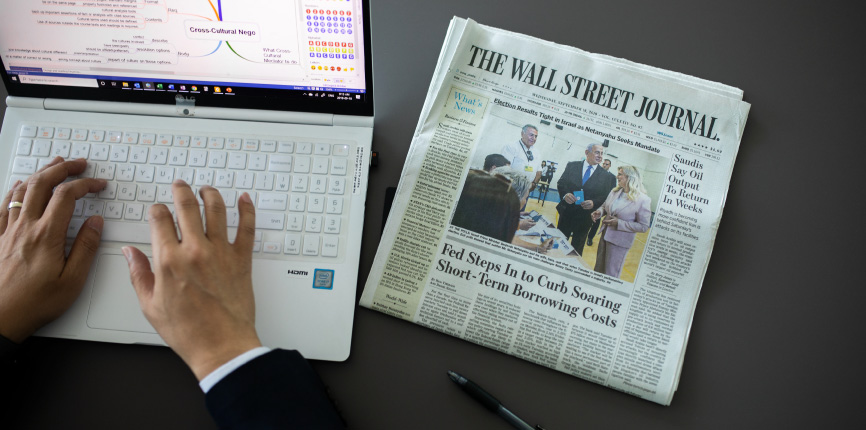
In academia, numerous accomplishments can be achieved. You can earn a dual degree and have expertise in multiple fields, or further your career potential by going back to school . But what about progressing from an MBA to a PhD?
In regards to higher education, many consider earning a PhD, or doctorate degree, the pinnacle of success. Usually, due to passion for a particular industry or subject, a PhD candidate will spend years of rigorous research to unpack its intricacies and become a leading expert in the field. At the end of their studies, they are able to finally see their work come to fruition when they receive their doctorate and join alongside other scholars. However, is it typical for an MBA graduate to move onto pursuing their PhD? And is there a specific purpose? Are there different types of PhD programs? What is the difference between a PhD and DBA?
To answer the budding question: yes, you can pursue your PhD after earning your MBA, and choosing to earn a doctorate is entirely up to you and your aspirations. To help you better understand if getting a PhD is the right choice, we look at the path an MBA graduate can take to earn their PhD, one of the higher purposes of a doctorate, and the different types of academic programs.
What is a PhD, and What is it Used For?
By definition, a PhD is a Doctor of Philosophy in a particular discipline, which is why it's also referred to as a doctorate. This focus is typically for individuals highly passionate about a specific subject matter, driven by the pursuit to understand it better through rigorous research. A majority of students seeking their PhD are eager researchers, although there are always exceptions, and each carries out years of highly intensive research to conclude their original thesis and earn their doctorate.
In terms of translating your education into a career, a doctorate can be used in a plethora of fields, especially if one’s thesis is around a wider subject matter and can be a discipline applied to various industries (take organizational development, for example). For those who are passionate about a career in research, a doctoral degree is a perfect fit. Possibly the most popular field for those with a doctorate is a fruitful career in academia, teaching their subject matter to others interested in the same area. Many graduates become faculty members at business schools upon completing their PhD and provide their expertise to their students. Regardless of which industry you choose, you can be assured that a PhD will provide you with numerous opportunities.
How Long Does it Take to Progress from an MBA to PhD?
The timeframe for earning your PhD can vary depending on program and location. Many countries have varying timelines of how long the completion of a doctoral program will take. In the United States, the average is around 4-5 years of completion after receiving your Master of Business Administration.
Do You Need an MBA to Get a PhD?
To be accepted into a doctoral program, you must have a master’s degree. It does not have to be a Master of Business Administration, but it does need to be a master’s of some form. Depending on your area of specialization, it could be advantageous to earn your MBA in pursuit of a PhD if you are planning to embark on a career in business upon completion of your doctorate. Additionally, one important aspect to consider is the program itself. It is important to look into a program’s requirements before applying to meet the eligibility criteria.
The Difference Between a DBA and a PhD
For those specifically interested in a career in business, a Doctor of Business Administration (DBA) is a highly beneficial doctoral program. A DBA focuses on a broader spectrum of business disciplines, dedicating research toward multiple corporate facets, and practical implementation. On the contrary, a PhD narrows into a specific area of discipline and research, emphasizing theory, and it’s potential implications. While both are heavily centered around research and implementation, a DBA sets business executives and leaders on a path to discover new possibilities for their organizations and businesses. In a way, it allows established business professionals to “trailblaze” the way for new and innovative ideas that can disrupt the market and set a precedent for the future of business.
Get Your MBA or DBA at Pepperdine Graziadio Business School
At Pepperdine Graziadio, we proudly offer degrees to accommodate business professionals at any stage of their lives and careers. Our full and part-time MBA programs are designed to prepare candidates for a successful career in values-based business leadership. All of our MBA programs offer a personalized learning approach executed by our world-class faculty. Each program is characterized by its top-ranked business curriculum that can be coupled with an academic concentration.
Our Executive Doctor of Business Administration (DBA) program has been carefully designed for the tenured business leader looking to drive groundbreaking innovations. This rigorous program allows candidates to gain in-depth knowledge and finetune their expertise through applied research. Also, executives enjoy learning alongside changemakers in various industries and participating in exclusive opportunities available only to DBA candidates.
Learn more about which programs fit your career aspirations and academic interests.
Learn more about how to achieve your career goals with a degree from Pepperdine Graziadio Business School.
Help Us Shape the Content You Love:
Blog Topic Feedback Survey.
Pick the topics you love from the dropdown menus below.
Select the topic that most interests you.
Additional Suggested Topic
- Student Life
- Graduate Programs
- Center for Applied Research
- Master's Degree
- Faculty Research
- Sustainability
- Entrepreneurship
- Talent Management
- Part-Time MBA
Copyright © 2024 Pepperdine University
- Privacy Policy
- GDPR Privacy Notice
- Clery Notice
- Terms of Use
- Title IX
- Web Accessibility

- Faculty Resources
- Request More Information
PhD/MBA Program
The Wake Forest University PhD/MBA program is dedicated to training and research at the interface between science and business to unleash the power and potential of technology for the benefit of society.
A large proportion of Ph.D. graduates work in the private sector in positions that use the skills acquired during their graduate training. But in addition to the scholarship and rigor that makes the Ph.D. a world model, there is a need for a broader range of skills for success in a changing employment climate. The Wake Forest University Graduate School of Arts and Sciences, in conjunction with the Schools of Business , has initiated an innovative course of study leading to the PhD/MBA. The Wake Forest PhD/MBA program is the first program of its kind in the nation, and the first to produce students with the joint degree (see testimonials from some of our graduates, below).
The World Can Change at the Intersection of Disciplines
Uniting science and management, the PhD/MBA program is preparing a new generation of leaders for the emerging fields of technology. Our mission is focused, providing education and research training leading to beneficial uses for the rapidly emerging discoveries in the sciences, and preparing students for industry or academic leadership. Multidisciplinary knowledge is indispensable in the development of new products and processes and in the translation of biomedical advances to patients and the global market. As the first graduate program in the nation offering management training with the Ph.D., we are dedicated to capturing the brightest minds and providing them with the scientific and management expertise needed to foster the technology infrastructure of the nation.
An Innovative and Efficient Curriculum
The PhD/MBA program is a synthesis of curricula from the Graduate School and the Evening MBA Program of the Schools of Business, with specialized course work and opportunities for industrial and business internships. The joint program is open to new and current students in all PhD-granting programs across all Wake Forest campuses. Students take from 4-6 years to complete the joint program, depending on the nature of the graduate research undertaken in the home program. The first year of the curriculum will provide students with a core base of knowledge in the core competencies of the home graduate program. At the end of the second year, and before beginning MBA course work, the student must take and pass examinations that will admit him/her to candidacy for the PhD. A student enrolling in the PhD/MBA program would have 5-6 semesters of evening MBA courses added to the graduate degree requirements. Opportunities for industrial projects and internships are possible after ascent to PhD candidacy and during the MBA coursework phase. The PhD and MBA degrees will be awarded simultaneously at the completion of all requirements for both degrees.
Apply Online
Students wishing to enroll in the combined program apply to and meet the respective admissions requirements of the Graduate School of Arts and Sciences and the Schools of Business. Admission to the MBA portion of the program occurs separately after gaining admission to the home graduate program, and after securing appropriate approval from the home program for participation in the joint program. In addition to the general requirements of the Graduate School of Arts and Sciences, the Schools of Business requires completion of the GMAT (General Management Aptitude Test). The Schools of Business will also accept the Graduate Record Exam (GRE) as a replacement for the GMAT for admissions.
Contact Information
Questions regarding admissions: Mr. Kevin Bender Associate Director, Graduate Admissions School of Business (336) 758-3091 [email protected]
General questions: Dr. Dwayne Godwin Associate Dean Graduate School of Arts and Sciences [email protected]
A Small Program with Big Impact
PhD/MBA students completed an economic impact study of new in silico algorithms used in the drug discovery process. This study contributed to a $2 million grant awarded by the US government to develop computer simulation software designed to predict biological and toxicological effects of drugs, which will reduce the failure rate in the drug development process. Pictured from the left are Donald Debethizy, President and CEO of Targacept, Inc., Randy Jacinto, PhD/MBA graduate; Richard Alexander, PhD/MBA graduate; Dwayne W. Godwin, Ph.D., Department of Neurobiology and Anatomy and Director of the PhD/MBA program; Adam Winseck, PhD/MBA graduate; and William S. Caldwell, Ph.D., Vice President of Drug Discovery and Development, Targacept, Inc. Not pictured is Heather Peters, PhD/MBA student who also worked on the project.
For a list of academic programs and contact information please visit:
Academic Programs and Contacts
To see a list of Programs:
- Degree Programs
- Dual Degree and Certificate Programs
- Summer Programs
- Diversity Programs
What the Students Have to Say About the PhD/MBA Program :
“My new job is exactly what I have been looking for. I found that the dual degree is an attractive combination that will allow me to go further, faster.” DR. ADAM WINSECK MEDICAL MARKETING, SANOFI AVENTIS, INC. 2004 NEUROBIOLOGY AND ANATOMY MEDICAL EDUCATION MARKETING
“The fusion of biology and business has provided a unique perspective – like looking at the world from space, it’s easier to see the whole picture. As an aspiring entrepreneur I feel that the skills I learned will amplify my ability to make a difference.” DR. RANDY JACINTO BIORAD, INC. 2004 PHD/MBA GRADUATE MOLECULAR MEDICINE
“Incredible advances can occur where disciplines collide. The PhD/MBA program has given me the tools to pursue a broader career horizon without sacrificing my core scientific interests.” DR. RICHARD ALEXANDER 2004 PHD/MBA GRADUATE PHYSIOLOGY/PHARMACOLOGY
“The PhD/MBA program prepared me for a career, not just a job. Today I am conducting research with a deeper understanding of how my work supports my organization.” DR. HEATHER PETERS PHD/MBA GRADUATE CHEMISTRY
“Drawing from my management and scientific training in equal measure, I’ve enjoyed the increased level of responsibility and respect that has come with achieving the dual degree.” DR. FRANK WELDER PHD/MBA GRADUATE CHEMISTRY MECHNICAL AND QUALITY DIRECTOR MICROBAC LABORATORIES, INC.
- WFU Schools of Business PhD/MBA page
- On-line GMAT practice tests free of charge
- ” WFU Merges Science and Business in Curriculum “ – Article in the Business Journal of the Triad
- SUGGESTED TOPICS
- The Magazine
- Newsletters
- Managing Yourself
- Managing Teams
- Work-life Balance
- The Big Idea
- Data & Visuals
- Reading Lists
- Case Selections
- HBR Learning
- Topic Feeds
- Account Settings
- Email Preferences
Why a Doctorate in Business Administration Is Becoming More Valuable
Sponsor content from upGrad.

At the turn of the 20th century, the world was industrializing at a rapid pace. Businesses were growing larger and more complex, with more employees working in more diversified divisions spread across more geographical boundaries.
As a result, demand grew for people who had special training in managing the general operations of a business, which led to the creation and proliferation of the Master of Business Administration (MBA) degree.
More than 100 years later, MBAs have become a commodity that no longer serve organizations’ core needs.
In today’s age of data and information, knowledge has become the most valuable resource. Companies don’t necessarily need more general managers who can assess broad patterns across multiple industries—they need people with deep expertise in specific domains who can analyze data and generate unique insights that lead to better business decisions.
That’s why Doctorate in Business Administration (DBA) holders are becoming increasingly valuable in the modern workplace.
DBA is a professional degree representing the highest level of qualification in management. In contrast to an MBA, it takes students on a different path toward acquiring and using business knowledge.
For an MBA, students spend two years taking a broad range of practical courses to learn about several pillars of business—such as accounting, finance, marketing, leadership, operations, strategy, and ethics—to help them become effective leaders across many industries.
By contrast, DBAs spend up to two years studying academic literature across several domains and up to two additional years designing and executing an original research project: a dissertation focused on one domain. The primary goal of a DBA is to produce scholarly individuals who have deep expertise in a field of management.
When seeking executive-level positions, DBAs’ “Dr.” titles are likely to help them stand out from their peers. DBAs can also pursue high-level positions in areas such as consulting by becoming subject-matter experts—or maintain ties with academia as full-time or adjunct professors.
DBAs’ training gives them diverse career options. The academic literature they read gives them expertise in understanding management theories that can help them analyze real-world situations and differentiate the signal from the noise. A DBA specializing in innovation can assess whether newcomers to a market pose a credible threat as a disruptive innovation to an existing company.
Students then learn advanced scientific techniques in quantitative and/or qualitative methodologies, which trains them in analyzing data to generate valid inferences that their organizations can use for decision-making purposes. Rather than relying on gut feel and graphs, DBAs can use powerful techniques such as sampling data to reduce bias, using statistical regressions to identify the strongest factors that influence an outcome, or designing an experiment to gain 100% certainty over the causal relationship between variables.
Finally, DBAs combine their business knowledge with analytical skills to design and execute original research studies, making them the world’s leading experts in particular domains.
DBAs also stand out because they represent only 2% of all people who hold higher degrees in business. In 2021, more than 250,000 students graduated with MBAs or specialist degrees in business; only 5,000 graduated with doctorates.
While a DBA may represent an attractive option that can be highly valuable to organizations today, they are not necessarily recommended for everyone.
To help you determine whether a DBA is right for you, the most important question to ask yourself centers on whether you’re satisfied with the tools and frameworks you use to analyze data and information to make important business decisions. If you’ve ever found yourself wondering where these frameworks come from—or whether there might be a better way to make decisions—consider applying to a DBA program. These programs are designed to channel deep intellectual interests and passions toward producing business knowledge that’s both theoretically novel and practically relevant.
DBA training may help you develop deeper knowledge than an MBA program will while opening doors to more ambitious careers in industry or academia. While MBA degrees are designed to meet the needs of 20th-century businesses, DBAs can help meet the needs of organizations today—and well into the future.
Learn more about how earning a DBA can help you step up your career.
- Joint Degrees
MBA/PhD with the Yale Graduate School of Arts and Sciences
The joint-degree program offers an MBA in combination with a PhD in the sciences or humanities from the Yale Graduate School of Arts and Sciences.
An MBA may be pursued in combination with a PhD in one of a wide array of areas of study , in the biological sciences, engineering and applied sciences, the humanities, the physical sciences, and social sciences. An MBA/PhD is not available in the management disciplines .
Students typically complete both degrees in approximately seven years, rather than the eight or more that would be required if the degrees were pursued separately. Programs are highly customized to fit each student's individual course of study, and are generally determined at the time of admission. Students must complete one full year at Yale SOM, during which they complete the integrated MBA curriculum, and one year taking courses at both schools. Students typically begin their full year at Yale SOM after PhD qualifying exams have been passed.
Students receive financial support from the Graduate School of Arts and Sciences during the semesters in which they are enrolled there. They pay tuition during the three semesters during which they are enrolled at Yale SOM.
Learn more about admission to the Yale School of Management. Learn more about admission to the Yale Graduate School of Arts and Sciences.
Business Administration

Harvard Business School offers a two-year, full-time, STEM-designated MBA program with a general management curriculum focused on real-world practice. Becoming a student at HBS means joining a global community that propels lifelong learning and career support alongside peers, faculty, and staff who will both challenge you and cheer you on as you find and accelerate your path. Learn about joint degree programs.
Jointly administered by HBS and the Graduate School of Arts and Sciences, the Ph.D. in business administration grounds students in disciplinary theories and methods and trains them to apply these theories and methods in academic research on important business problems. The program has four areas of study: accounting and management, marketing, strategy, and technology and operations management. The program prepares students for a career in academia at top business schools and research institutions around the world.
Smart. Open. Grounded. Inventive. Read our Ideas Made to Matter.
Which program is right for you?

Through intellectual rigor and experiential learning, this full-time, two-year MBA program develops leaders who make a difference in the world.
Earn your MBA and SM in engineering with this transformative two-year program.
A rigorous, hands-on program that prepares adaptive problem solvers for premier finance careers.
A 12-month program focused on applying the tools of modern data science, optimization and machine learning to solve real-world business problems.
Combine an international MBA with a deep dive into management science. A special opportunity for partner and affiliate schools only.
A doctoral program that produces outstanding scholars who are leading in their fields of research.
Bring a business perspective to your technical and quantitative expertise with a bachelor’s degree in management, business analytics, or finance.
Apply now and work for two to five years. We'll save you a seat in our MBA class when you're ready to come back to campus for your degree.
Executive Programs
The 20-month program teaches the science of management to mid-career leaders who want to move from success to significance.
A full-time MBA program for mid-career leaders eager to dedicate one year of discovery for a lifetime of impact.
A joint program for mid-career professionals that integrates engineering and systems thinking. Earn your master’s degree in engineering and management.
Non-degree programs for senior executives and high-potential managers.
A non-degree, customizable program for mid-career professionals.
PhD Program
Program overview.
Now Reading 1 of 4
Rigorous, discipline-based research is the hallmark of the MIT Sloan PhD Program. The program is committed to educating scholars who will lead in their fields of research—those with outstanding intellectual skills who will carry forward productive research on the complex organizational, financial, and technological issues that characterize an increasingly competitive and challenging business world.
Start here.
Learn more about the program, how to apply, and find answers to common questions.
Admissions Events
Check out our event schedule, and learn when you can chat with us in person or online.
Start Your Application
Visit this section to find important admissions deadlines, along with a link to our application.
Click here for answers to many of the most frequently asked questions.
PhD studies at MIT Sloan are intense and individual in nature, demanding a great deal of time, initiative, and discipline from every candidate. But the rewards of such rigor are tremendous: MIT Sloan PhD graduates go on to teach and conduct research at the world's most prestigious universities.
PhD Program curriculum at MIT Sloan is organized under the following three academic areas: Behavior & Policy Sciences; Economics, Finance & Accounting; and Management Science. Our nine research groups correspond with one of the academic areas, as noted below.
MIT Sloan PhD Research Groups
Behavioral & policy sciences.
Economic Sociology
Institute for Work & Employment Research
Organization Studies
Technological Innovation, Entrepreneurship & Strategic Management
Economics, Finance & Accounting
Accounting
Management Science
Information Technology
System Dynamics
Those interested in a PhD in Operations Research should visit the Operations Research Center .

PhD Program Structure
Additional information including coursework and thesis requirements.

MIT Sloan Predoctoral Opportunities
MIT Sloan is eager to provide a diverse group of talented students with early-career exposure to research techniques as well as support in considering research career paths.
Rising Scholars Conference
The fourth annual Rising Scholars Conference on October 25 and 26 gathers diverse PhD students from across the country to present their research.
Now Reading 2 of 4
The goal of the MIT Sloan PhD Program's admissions process is to select a small number of people who are most likely to successfully complete our rigorous and demanding program and then thrive in academic research careers. The admission selection process is highly competitive; we aim for a class size of nineteen students, admitted from a pool of hundreds of applicants.
What We Seek
- Outstanding intellectual ability
- Excellent academic records
- Previous work in disciplines related to the intended area of concentration
- Strong commitment to a career in research
MIT Sloan PhD Program Admissions Requirements Common Questions
Dates and Deadlines
Admissions for 2024 is closed. The next opportunity to apply will be for 2025 admission. The 2025 application will open in September 2024.
More information on program requirements and application components
Students in good academic standing in our program receive a funding package that includes tuition, medical insurance, and a fellowship stipend and/or TA/RA salary. We also provide a new laptop computer and a conference travel/research budget.
Funding Information
Throughout the year, we organize events that give you a chance to learn more about the program and determine if a PhD in Management is right for you.
PhD Program Events
September 12 phd program overview.
During this webinar, you will hear from the PhD Program team and have the chance to ask questions about the application and admissions process.
DocNet Recruiting Forum at University of Minnesota
We will be joining the DocNet consortium for an overview of business academia and a recruitment fair at University of Minnesota, Carlson School of Management.
September 25 PhD Program Overview
Docnet recruiting forum - david eccles school of business.
MIT Sloan PhD Program will be joining the DocNet consortium for an overview of business academia and a recruitment fair at Utah, David Eccles School of Business.
Complete PhD Admissions Event Calendar
Unlike formulaic approaches to training scholars, the PhD Program at MIT Sloan allows students to choose their own adventure and develop a unique scholarly identity. This can be daunting, but students are given a wide range of support along the way - most notably having access to world class faculty and coursework both at MIT and in the broader academic community around Boston.
Now Reading 3 of 4

Profiles of our current students
MIT Sloan produces top-notch PhDs in management. Immersed in MIT Sloan's distinctive culture, upcoming graduates are poised to innovate in management research and education.
Academic Job Market
Doctoral candidates on the current academic market
Academic Placements
Graduates of the MIT Sloan PhD Program are researching and teaching at top schools around the world.
view recent placements
MIT Sloan Experience
Now Reading 4 of 4
The PhD Program is integral to the research of MIT Sloan's world-class faculty. With a reputation as risk-takers who are unafraid to embrace the unconventional, they are engaged in exciting disciplinary and interdisciplinary research that often includes PhD students as key team members.
Research centers across MIT Sloan and MIT provide a rich setting for collaboration and exploration. In addition to exposure to the faculty, PhD students also learn from one another in a creative, supportive research community.
Throughout MIT Sloan's history, our professors have devised theories and fields of study that have had a profound impact on management theory and practice.
From Douglas McGregor's Theory X/Theory Y distinction to Nobel-recognized breakthroughs in finance by Franco Modigliani and in option pricing by Robert Merton and Myron Scholes, MIT Sloan's faculty have been unmatched innovators.
This legacy of innovative thinking and dedication to research impacts every faculty member and filters down to the students who work beside them.
Faculty Links
- Accounting Faculty
- Economic Sociology Faculty
- Finance Faculty
- Information Technology Faculty
- Institute for Work and Employment Research (IWER) Faculty
- Marketing Faculty
- Organization Studies Faculty
- System Dynamics Faculty
- Technological Innovation, Entrepreneurship, and Strategic Management (TIES) Faculty
Student Research
“MIT Sloan PhD training is a transformative experience. The heart of the process is the student’s transition from being a consumer of knowledge to being a producer of knowledge. This involves learning to ask precise, tractable questions and addressing them with creativity and rigor. Hard work is required, but the reward is the incomparable exhilaration one feels from having solved a puzzle that had bedeviled the sharpest minds in the world!” -Ezra Zuckerman Sivan Alvin J. Siteman (1948) Professor of Entrepreneurship
Sample Dissertation Abstracts - These sample Dissertation Abstracts provide examples of the work that our students have chosen to study while in the MIT Sloan PhD Program.
We believe that our doctoral program is the heart of MIT Sloan's research community and that it develops some of the best management researchers in the world. At our annual Doctoral Research Forum, we celebrate the great research that our doctoral students do, and the research community that supports that development process.
The videos of their presentations below showcase the work of our students and will give you insight into the topics they choose to research in the program.
Attention To Retention: The Informativeness of Insiders’ Decision to Retain Shares
2024 PhD Doctoral Research Forum Winner - Gabriel Voelcker
Watch more MIT Sloan PhD Program Doctoral Forum Videos

Keep Exploring
Ask a question or register your interest
Faculty Directory
Meet our faculty.

The Experience
- Career Impact
- Global Opportunities
- Inclusion + Belonging
- History + Legacy
- Convocation Ceremony
Academic Expertise
- AI + Data Analytics
- Family Business
- Social Impact + Sustainability
- Entrepreneurship
Degree Programs
- Full-Time MBA
- Executive MBA
- Master in Management
- Evening & Weekend MBA
- Certificate Program for Undergraduates
- Which Program is Right for Me?
- Admissions Events
- Academic Calendars
Executive Education
- Online Programs
- Programs for Individuals
- Nonprofit Programs
- Programs for Groups
- The Kellogg Advantage
- Contact Executive Education
- Request a Brochure
- Find a Program
- Alumni Network
- Career Journeys
- Global Impact
- Student Stories
Applying to Kellogg
- Inclusion and Belonging
Publications and blogs
- Kellogg Magazine
- Kellogg Insight
- See All News + Stories
Academics + Research
- Faculty Directory
- Institutes + Centers
- Case Studies
- Faculty Teaching Awards
- Academic Departments
- Research + Books
- Faculty Recruiting
- Evening + Weekend MBA
- Deferred Enrollment
- PhD / Doctoral
- Undergraduate Certificate
Additional resources
- Tuition + Financial Aid
- Log into my account portal
- Companies + Recruiters
- Keep in contact
- Attend an Event
Take Action

Kellogg Opens Its Global Hub
Academic experience, student life.
- Frequently Asked Questions (FAQ’s)

Academic Rigor, Real-World Relevance
When you study at the undergraduate level, you are introduced to a field and gradually become aware of its unexpected nuances and complexities. At the doctoral level, you acquire an intellectual framework that allows you to embrace and accommodate that complexity as you strive to make sense of the world. As you progress, your novel insights help others make sense of the world as well. When that occurs, you are contributing to knowledge. Doctoral study is rigorous and immersive—but it is rewarding.
In the Kellogg PhD program, you will master an academic discipline—economics, psychology, sociology, operations research, or data science—and apply that mastery to real world problems facing managers and policy makers. This discipline-based approach prepares you to challenge conventional wisdom with new ideas, models, and empirical findings that have enduring impact on businesses, organizations, and communities. After leaving Kellogg, you can look forward to a career leading and inspiring others through teaching and research.
- Kellogg’s distinguished faculty includes trailblazing scholars whose research has redefined the study of management and has set a standard for new ideas and innovation. Currently there are 139 tenure-track, research-based faculty, of whom 68 hold endowed chairs. The faculty’s commitment to scholarly inquiry is evidenced by the school’s many research centers, as well as by sustained scholarly output. Their work is published in peer-reviewed journals , and many Kellogg professors serve in editorial positions at leading research journals. The Kellogg faculty is deeply committed to PhD education. Within the past five years, over 60 different faculty have served on at least 3 PhD dissertation committees, and a phenomenal 26 faculty have chaired at least 2 committees!
- Kellogg faculty carefully balance their dedication to research with their commitment to teaching and mentoring PhD students, recognizing that both activities contribute to the quality of the education our students receive. The richness of the curriculum within this collegial environment encourages close working relationships between students and faculty across disciplines. We believe that this approach helps magnify our students' insights and perspectives as they are exposed to new ideas, possible thesis topics, and avenues of research. Collaboration does not stop at the walls of academia. As a world-class business school, Kellogg also offers tremendous opportunities to connect to real businesses, government organizations, and NGOs, which can translate into ideas and data for research. And Kellogg will provide you with the resources you need for data acquisition, technical support, research labs, and field study, so that you can turn your research ideas into reality.

Study with the World’s Foremost Thinkers and Educators
Collaborative, supportive research environment, the kellogg difference.

PhD The Stevens Doctoral Program
Join a community of bold thinkers.
The Stevens Doctoral Program at Chicago Booth is the top destination for analytical, intellectually curious individuals who want to earn a doctorate in business from one of the best business PhD programs in the world.
As a PhD student at Chicago Booth, you will explore and cultivate your research interests from day one—wherever they lead you. In partnership with our distinguished faculty , you will develop your ability to conduct groundbreaking research. You’ll graduate with a business PhD and the tools to achieve academic and professional success.
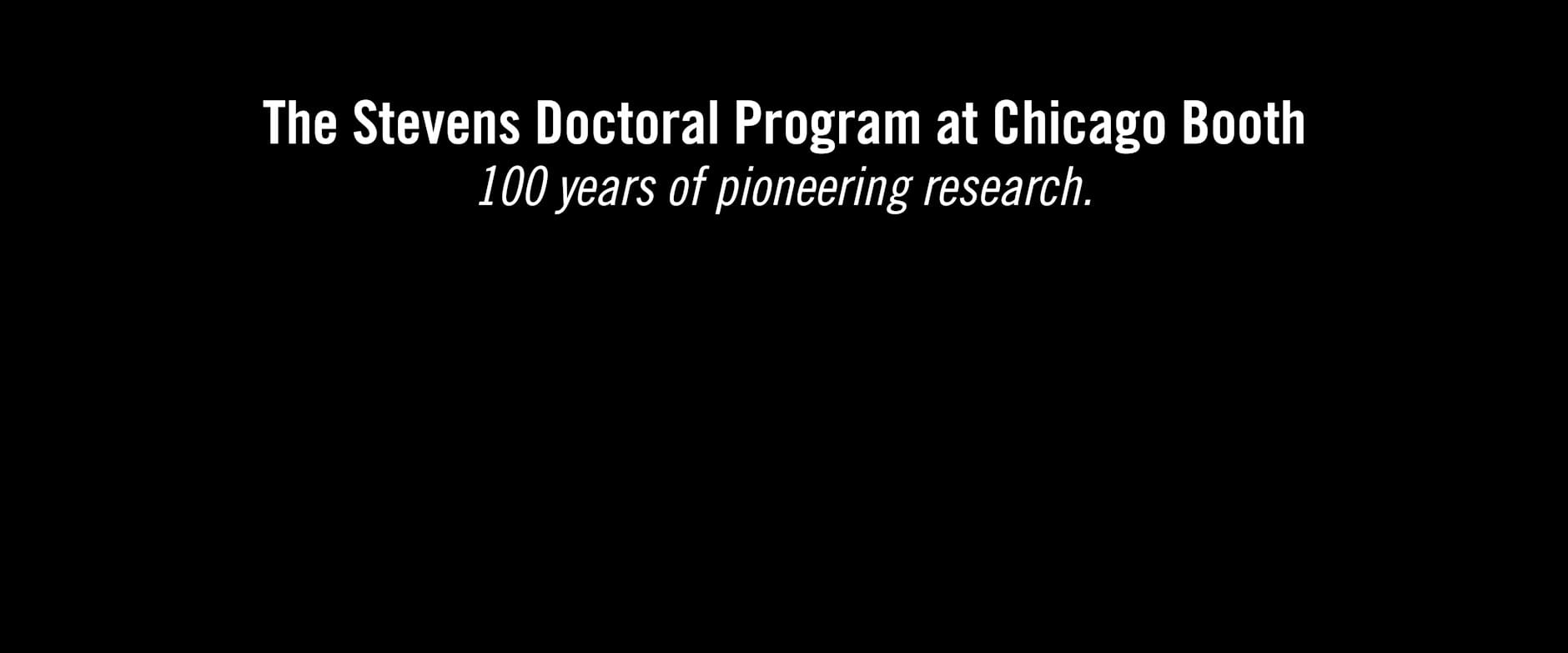
Video Transcript
Baris Ata (00:00): When I came here, it felt like, "Now I'm in the major leagues." I realized how high the standards are.
Jane L. Risen (00:09): We're the oldest PhD program within a business school, which is pretty extraordinary to think of sort of how long ago the recognition was there that we wanted to be training not just business leaders in practice, but to be training the future leaders of academic discipline.
Ray Ball (00:26): So I arrived in 1966. Oh, it was marvelous. The place just crackled with ideas and open discussion, and I ended up throwing out all the ideas I came with.
Ann L. McGill (00:35): What I especially liked about learning things here is this is an interdisciplinary school, so you didn't have to dive in a silo. You can wrap your arms around huge areas.
Marianne Bertrand (00:46): What is special is that we are part of a business school, training PhD students across a range of disciplines, not just economics or finance, which we deploy in the Economics Department, but also students are doing psychology, operation research.
Ray Ball (00:59): At Chicago, the ideas were the authorities, not the people, and they were all up for grabs.
Amir Sufi (01:06): What we're trying to create here is people who produce knowledge, not just consume it. And that's the real challenge I think of PhD education.
Ana-Maria Tenekedjieva (01:15): I was never told at any point that, "Oh, this is not real finance. This question is too outside of the box." On the contrary, it was always, "You should do what you want to do, and we're going to think about placement once the paper is ready."
Jane L. Risen (01:32): You don't make any assumptions. You question everything.
Pradeep K. Chintagunta (01:35): It's not enough just to know what other people have done. It's also important to know what needs to be done next. To be able to do that, you need to be able to ask questions beyond the questions that have been asked in the previous literature or in the previous knowledge that's already out there.
Jeffrey R. Russell (01:53): When you're going to seminars here, or watching my colleagues talk in the hallways, you'll often see them in what look like very contentious battles. But really, they're just after, "What's the right answer?" When PhD students come here, they are able to sort of bring that into their own souls, and I think that really pushes them then to sort of be the best possible researcher that they can.
Ana-Maria Tenekedjieva (02:12): Chicago Booth is known for its quite aggressive questioning style. I think that we get a little bit of a bad rap. There is a point to the aggressive questioning, and it is to clarify the idea. In Chicago Booth the spirit is be tough on the idea, not on the person.
Amir Sufi (02:30): Throughout the world, we're appreciating more and more how influential research can be. I think our PhD students going forward will increasingly be placed in positions, both in scholarship and in government and in business, where they can have major influence.
Ray Ball (02:48): So the fact that this is the oldest doctoral program in business, that it has been going for 100 years, gives some indication of the commitment of this school to training people. We still have those same values, and so it's always going to generate people who change the world, who change the way we think. I can't tell you at this point how that will happen. That's exactly the idea. New people come in with new ideas, and they learn how to implement them in the school, and they change the way we think about the world. And that's going to keep going.
PhD in Business at a Glance
The Stevens Program is highly competitive—and highly rewarding. Approximately 20–25 new PhD students matriculate each fall from an applicant pool of more than 1,000, and our graduates are highly sought after at the world's most elite institutions of higher learning, in government, and at leading global businesses.
Our program is a full-time program that typically takes about five years to complete. PhD students can apply for one of our seven dissertation areas or three joint PhD programs.
Explore Our Dissertation Areas and Joint PhD Programs
Our program gives you the flexibility to meet your intellectual and academic goals. We have seven doctoral dissertation areas, as well as three joint PhD programs.
Join Our Research Community
In collaboration with faculty and fellow students, you’ll conduct innovative research and prepare for a successful career.
How to Apply for and Fund Your PhD in Business
Explore phd admissions.
Earn your PhD in one of the best business PhD programs in the world. Here’s how to join our community of bold thinkers.
Attend a PhD Admissions Event
Join us at an information session or recruiting forum to learn more about the Stevens Doctoral Program at Chicago Booth.
Explore Financial Aid
At Chicago Booth, PhD students receive a tuition grant, a stipend, student health insurance, a computer or computer subsidy, and access to research and travel funding.
Meet Our Alumni and Job Market Candidates
Discover our alumni success.
For 100 years, Chicago Booth has been a proven training ground for the next generation of leading professionals in academia, government, and industry.
See Our PhD Job Market Candidates
See the Stevens Doctoral Program's current job market candidates—the next generation of researchers who will shape theory and practice in business and beyond.
Discover UChicago
Discover UChicago is a two-day program that introduces third-year undergraduates to the prospect of pursuing a graduate degree at UChicago and other institutions alike. At the event, Stevens Doctoral Program representatives will shed light on the program and application process, as well as navigating academic life at Chicago Booth.
Celebrating 100 Years of Pioneering Research
Since 1920, our faculty, alumni, and students have been driving the evolution of modern research in a wide range of disciplines.
On April 11, 2024, scholars in financial economics gathered to share ongoing research in a series of alumni and student presentations as part of a commemorative event dedicated to our late colleague, Yiran Fan.
Stories from Our Community
Measuring preferences for privacy.
Current PhD student Tesary Lin’s passion for economics and behavioral science has led her to develop a new incentive framework for businesses that want to use consumer data to inform managerial decisions, while respecting consumers’ privacy preferences.
A PhD for Social Impact
A passion for travel, social impact, and wanting to "dig deeper" inspired current student Gülin Tuzcuoğlu to pursue a PhD in operations research.
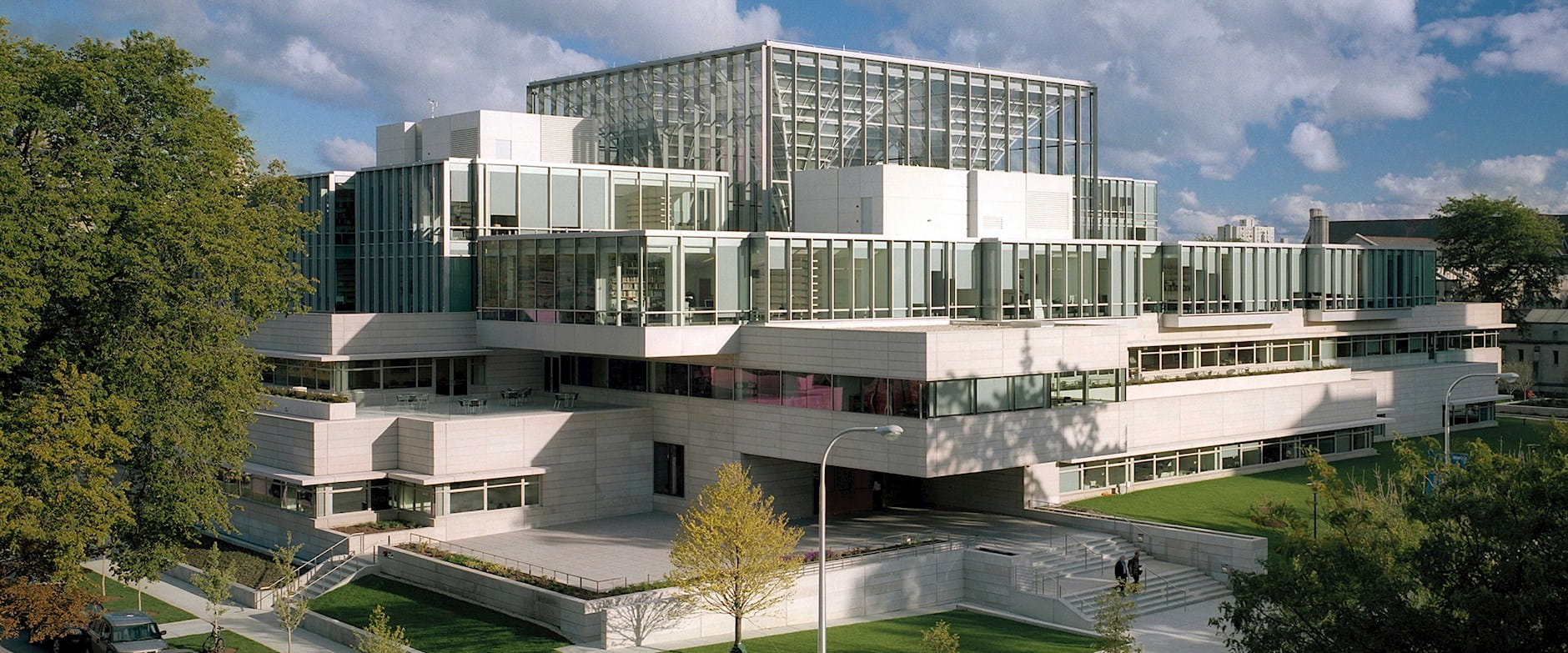
Hyde Park Campus
Take a Virtual Tour
If you still have questions after reviewing our doctorate in business FAQ , please contact us. We look forward to hearing from you!
Phone: 773.702.7298 Email Us

PhD in Management Program
A phd in management: where business research and education intersect.
Become an industry thought leader while preparing tomorrow’s business leaders.
Our fully funded PhD in Management is designed for ambitious students and professionals interested in a career in university teaching and research.
This residential program, based at the Samuel Curtis Johnson Graduate School of Management in Ithaca, NY, combines Ivy League rigor and real-world relevance to prepare you for successful careers in academia.
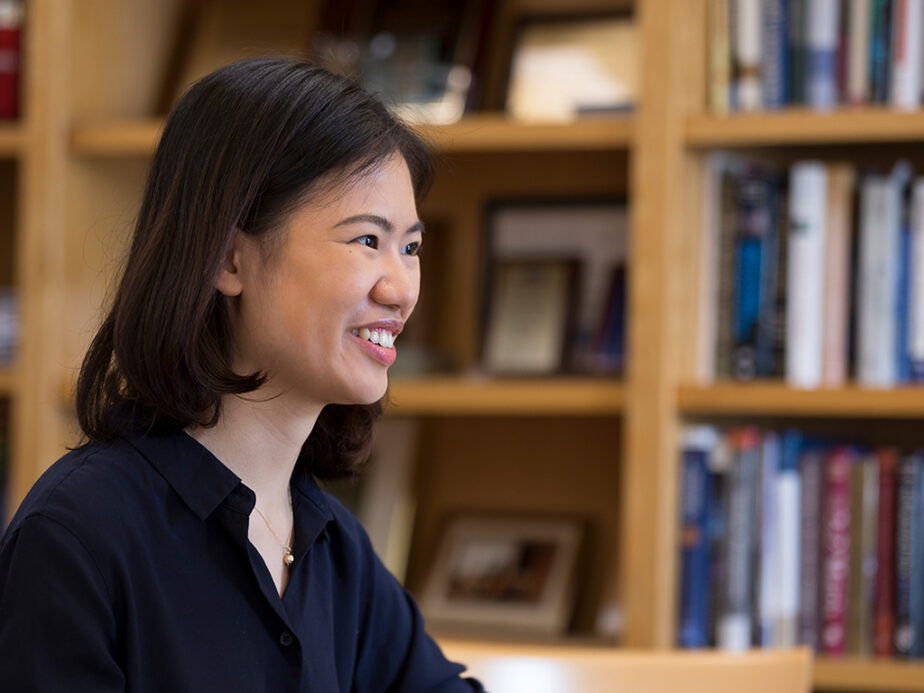
Why Get a PhD in Management?
With a strong focus on management science and applied research, this doctoral degree is ideal for someone looking to teach at the university level and contribute to the greater body of industry knowledge. Pursuing a PhD in Management is also an ideal next step for executives and senior managers who want to make a transition to academia or enhance their research skills for a successful consulting career.
Fully Funded, Highly Flexible: What Makes Cornell’s Management PhD Different?
As you explore PhD programs’ degree requirements, faculty engagement, and campus experience, Cornell stands alone.
In Cornell’s highly flexible program, you’ll choose a specific area of study and build your own dissertation committee. Our program faculty are genuinely interested and invested in your intellectual development. In this small and highly selective program, you will get to know the faculty and your peers well.
The SC Johnson Graduate School of Management is home to leading research centers and a high-impact academic journal; these open you up to unique learning and mentorship opportunities.
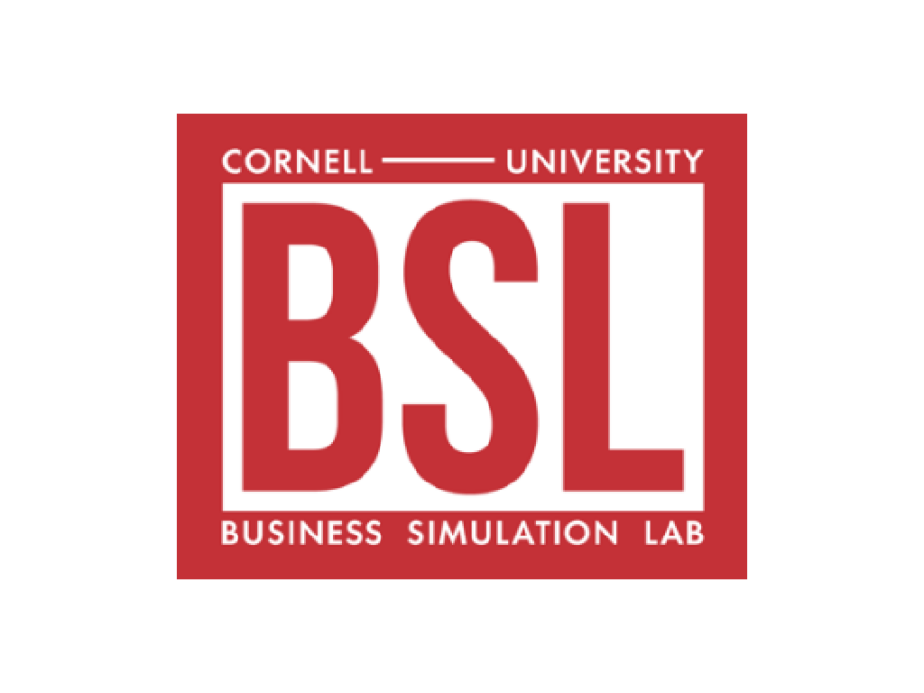
Business Simulation Lab
The Debra Paget and Jeffrey Berg Business Simulation Lab facilitates in-person and online behavioral research related to decision-making and problem-solving.
Discover More About BSL
Our Three-Pronged Approach to a PhD in Management
The Johnson School’s doctoral degree in management combines the best of theory and practice, building on a three-pronged foundation:
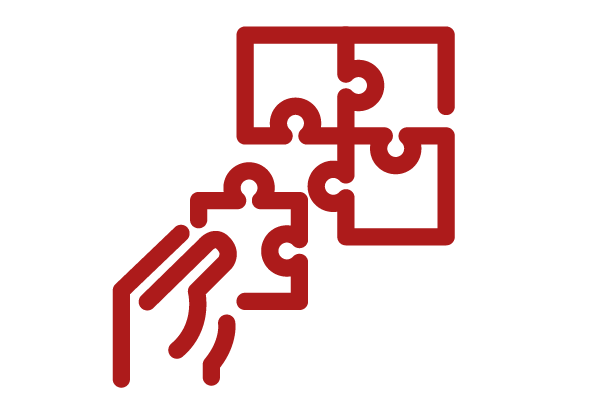
Hands-on Experience
Develop your research and analytical skills. You’ll work with classmates to examine existing literature and theories for class deliverables, which will often include your own original research.
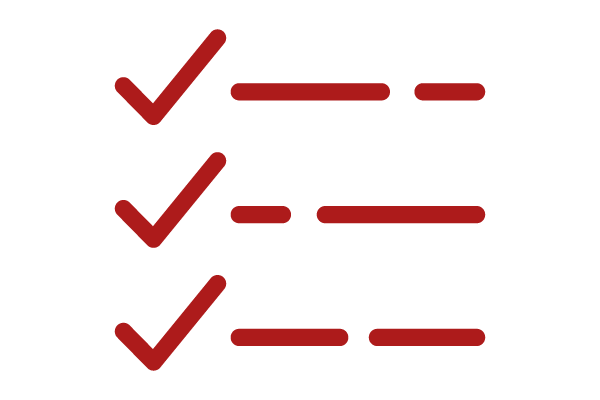
Customizable Curriculum
Design your own academic pathway. You’ll choose one of six primary areas of study and create your own dissertation committee.
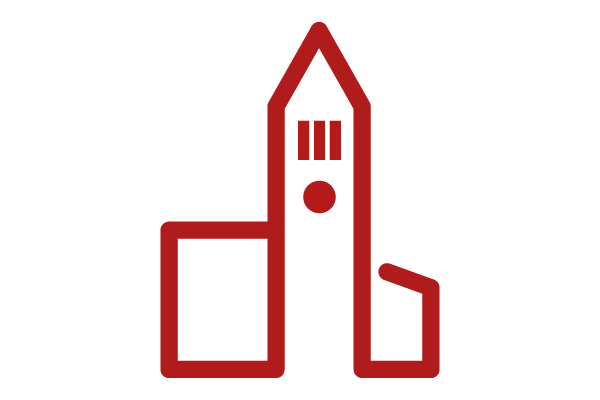
University-Wide Coursework
Draw on the expertise from across Cornell. You’ll get to select graduate-level courses from schools and colleges devoted to law , hospitality , engineering , labor relations , and other fields.
At a Glance: Cornell’s Fully Funded PhD in Management
The fully residential, fully funded PhD in Management program includes a tuition waiver and a stipend for living expenses. Here’s a quick overview of what to expect:
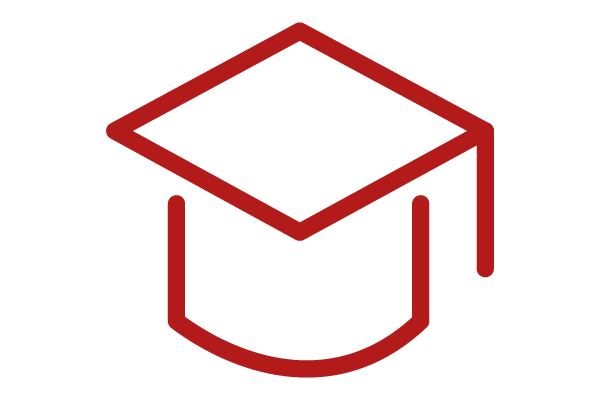
Degree Awarded
PhD in Management
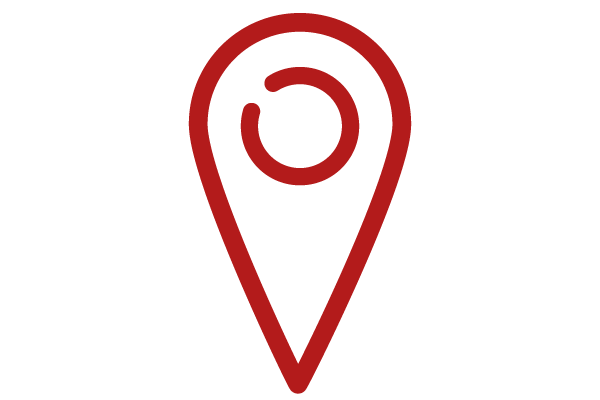
Program Location
Ithaca, NY, with options in New York City
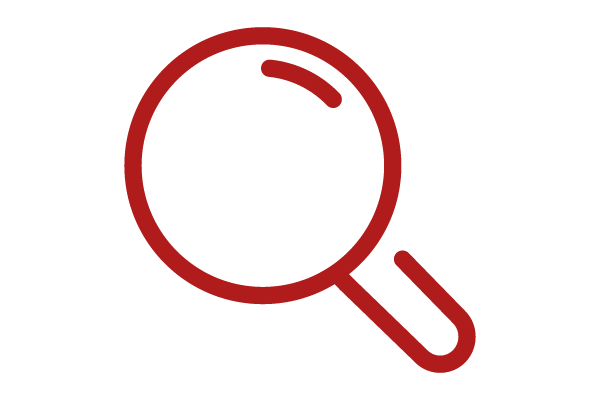
Program Format
Foundational coursework, original research, and six potential areas of study
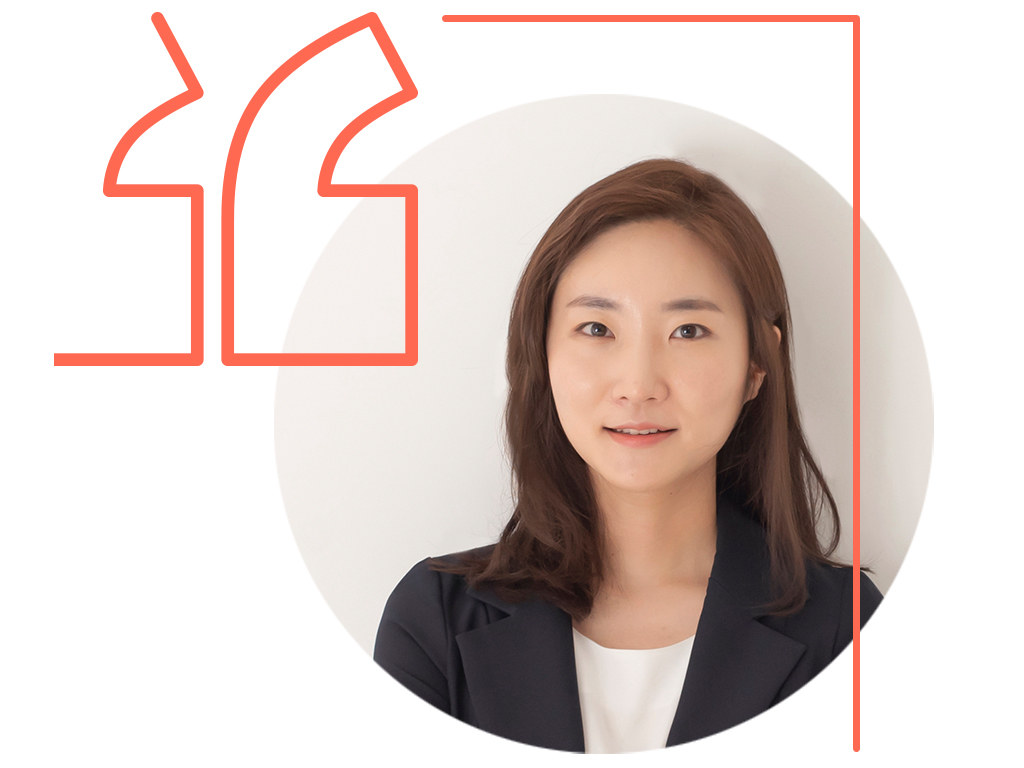
Hear from Our Community
“PhD is a marathon, not a sprint, and collaborating with great people is paramount. At Cornell, I’ve found a place where amazing people come together, supporting my research and personal growth. Choosing Cornell means joining a community that knows how important it is to work with exceptional people to excel in the program.” – Elina Hur PhD ’23

Customize Your Path: Our Areas of Study
When you apply to the Johnson School’s PhD in Management, you will select a primary area of study. Choosing a concentration allows you to gain specialized skills and knowledge while growing a portfolio of original research.
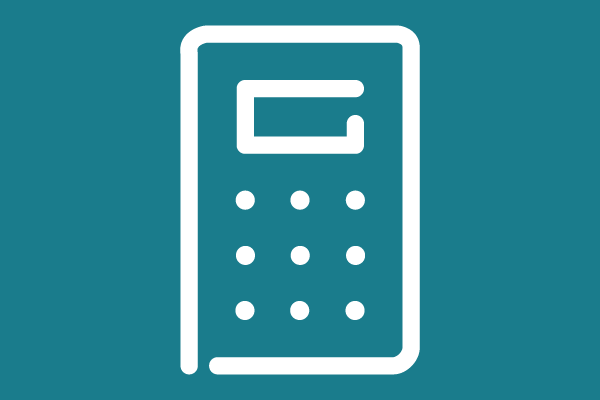
Examine the role of accounting information in firms and financial markets. PhD-level research at Cornell explores topics such as how firms report information to investors, how accounting information is used to manage firms, and the nature of auditing.
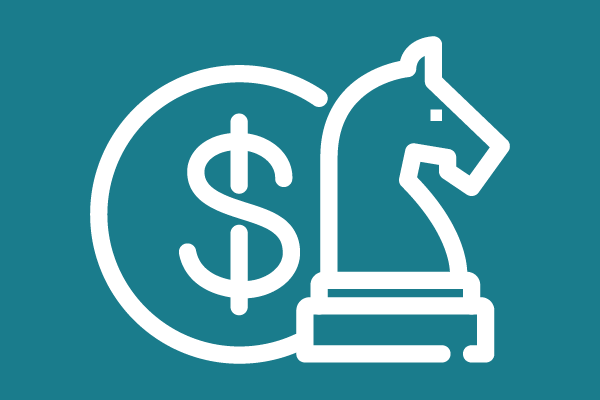
Strategy & Business Economics
Use modern tools and methodologies to gain a better understanding of the world. PhD students in this area explore many aspects of economics including industrial, behavioral, labor, and organizational.
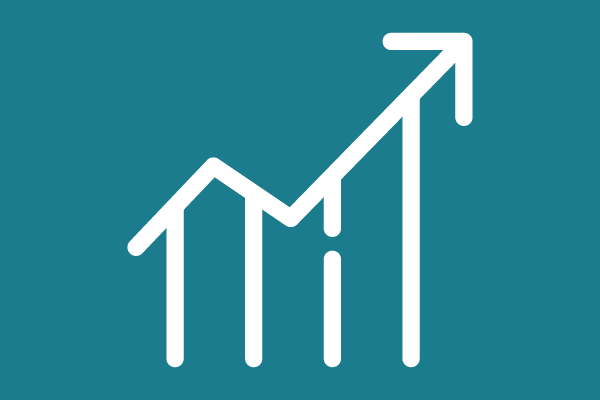
Dive deep into the financial structure and issues of organizations. Your research might look at how conflicts of interest affect corporate policy, how investor psychology affects asset pricing, or how to detect price bubbles.

Learn how theories from operations research, economics, psychology, and sociology intersect to inform corporate and consumer decisions. Your PhD studies will explore both quantitative and behavioral perspectives of marketing.
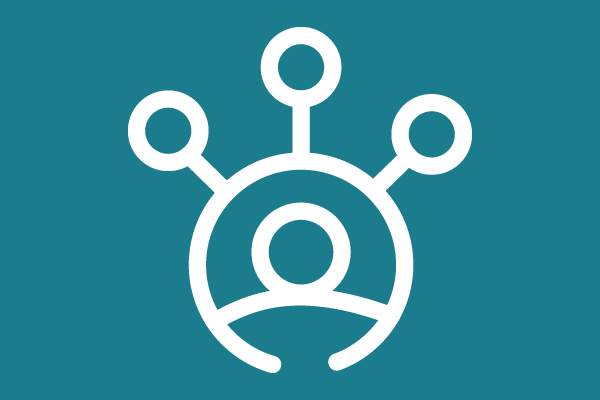
Management & Organizations
Prepare for a research-focused career in academia or industry. This versatile concentration develops skilled, innovative, analytical researchers through a broad curriculum and close faculty collaboration.
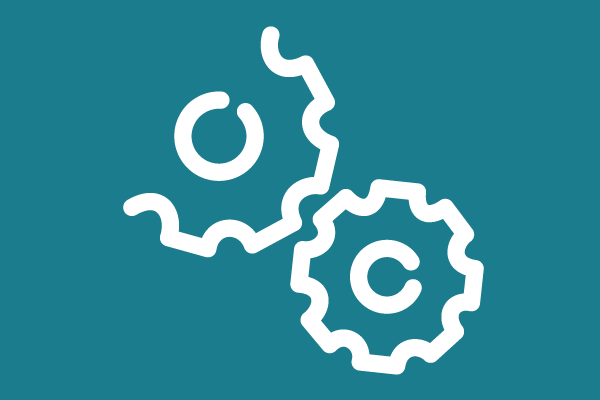
Operations, Technology, & Information Management
Develop the technical skills and behavioral analysis knowledge you need to address high-impact managerial decisions. This focus area also offers an option to complete coursework at Cornell Tech in New York City.

Idea Generation to Publication: A Career in Teaching and Research
The majority of our PhD in Management students pursue careers in academia. After graduation, many land tenure-track teaching positions at top-tier business schools and continue to advance knowledge through original research. Johnson School PhD students often field multiple offers and see starting salaries range from $150,000 to $250,000.
Finding Your Place at Cornell: Meet Our Current PhDs
Students from around the United States and across the globe arrive at the Johnson School to earn their PhD in Management—and their diverse research interests, educational backgrounds, and professional experiences make for a vibrant, enriching learning environment.
MEET CURRENT PHD STUDENTS
Research and Placements: Making an Impact in the Management Field
After earning the PhD in Management, our alumni go on to teach and inspire future leaders at top-tier institutions. Not only do they teach and conduct research alongside some of the most brilliant minds in business, but they also advance the field through publishing in leading journals and presenting their work at industry conferences.
Recent PhD in Management Placements
- Piyush Anand, PhD ’21, assistant professor of marketing, Jones Graduate School of Business, Rice University
- Guarav Kankanhalli, PhD ’20, assistant professor, Joseph M. Katz Graduate School of Business, University of Pittsburgh
- Eunjee Kim, PhD ’21, assistant professor, Mays Business School, Texas A&M University
- Sarah Lim, PhD ’21, assistant professor, Gies College of Business, University of Illinois Urbana-Champaign
- Xuege Lu, PhD ’22, assistant professor, Carlson School of Management, University of Minnesota
- Subrina Shen, PhD ’21, assistant professor, McCombs School of Business, University of Texas at Austin
Recent Research Publications
- “ Do Real Estate Values Boost Corporate Borrowing? Evidence from Contract-Level Data ” in the Journal of Financial Economics (2022) — Gaurav Kankanhalli, PhD ’20, with Murillo Campello, Robert A. Connolly, and Eva Steiner
- “ Converging Tides Lift All Boats: Consensus in Evaluation Criteria Boosts Investments in Firms in Nascent Technology Sectors ” in Organization Science (2021) — Xirong (Subrina) Shen, PhD ’21, with Huisi (Jessica) Li, PhD ’20, and Pamela S. Tolbert
- “ Initial and Longer-Term Change in Unit-Level Turnover Following Leader Succession: Contingent Effects of Outgoing and Incoming Leader Characteristics ” in Organization Science (2020)— Huisi (Jessica) Li, PhD ’20, with John Hausknecht and Lisa Dragoni
“ Does Regulatory Jurisdiction Affect the Quality of Investment-Adviser Regulation? ” in American Economic Review (2019) — Alan Kwan, PhD ’17, with Ben Charoenwong and Tarik Umar
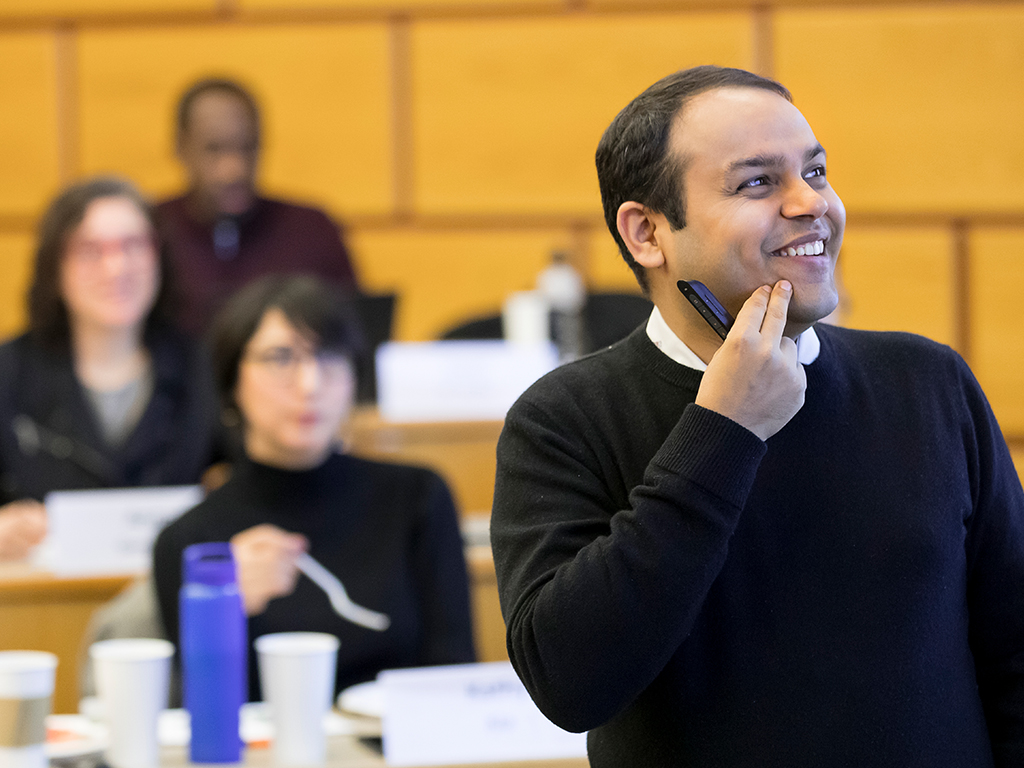
Our Faculty: Accomplished Researchers, Dedicated Teachers
When you join the PhD in Management program at the Johnson School, you’ll be part of a learning community comprising more than 100 accomplished academics and thought leaders.
Not only will you take courses with renowned professors from across the Cornell SC Johnson College of Business, but you also will have the opportunity to build your own faculty committee—a group that will become instrumental as you select your dissertation topic and embark on your original research.
Faculty Spotlight: Learn from Leading Thought Leaders
Throughout the PhD program—from foundational coursework to your dissertation—you’ll work closely with dedicated teacher-scholars like these:
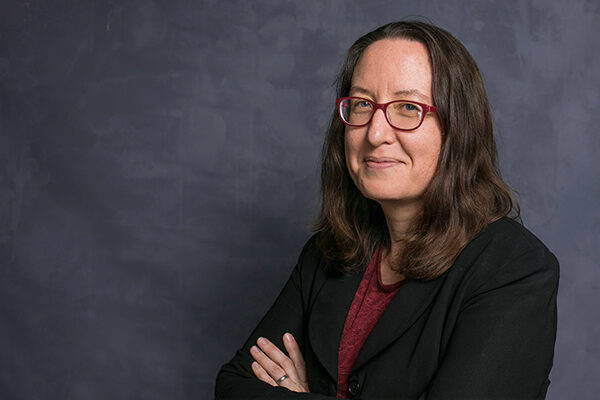
Kristina Rennekamp
Dr. Rennekamp’s research focuses on financial accounting from a behavioral perspective. She’s widely published, with work appearing in leading academic journals such as The Accounting Review , Contemporary Accounting Research , and The Journal of Financial Reporting .
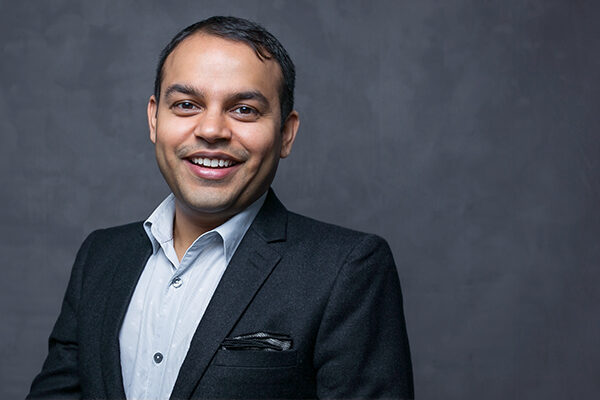
Karan Girotra
Dr. Girotra studies the digital transformation of companies, whether it’s looking at emerging tools and practices or exploring new business models. He’s frequently interviewed in an array of mainstream business media outlets, including Bloomberg BusinessWeek , Fortune , and Forbes .
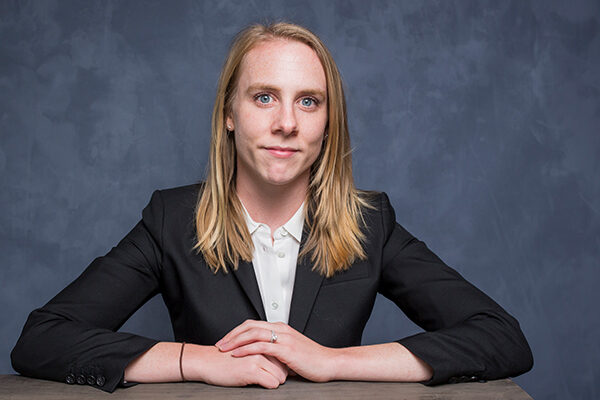
Kaitlin Woolley
Dr. Woolley studies the psychological processes behind consumer motivation. She’s an award-winning educator and researcher with work published in academic journals and national media outlets including the Journal of Consumer Research , Journal of Marketing Research , and The Wall Street Journal .
EXPLORE JOHNSON SCHOOL FACULTY
What You’ll Learn: Curriculum Overview
As you pursue your PhD in business management, you’ll begin with a set of foundation courses and progress into advanced coursework in your area of interest. Through it all, your faculty committee will help make sure you’re on the right track.

Foundational Management Coursework
Early in your doctoral program, you will complete foundational coursework in management and other fields. Many of these will focus on the research process and prepare you for your dissertation.
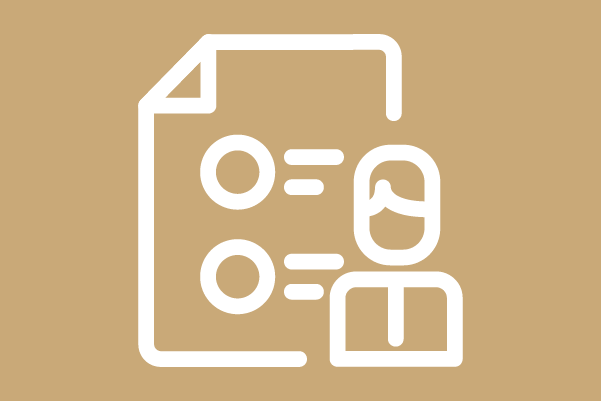
Advanced Coursework in Your Concentration Area
As you progress in the PhD in Management program, you’ll take electives and advanced courses that align with your research area of interest; these classes can be in the Johnson School and across Cornell.
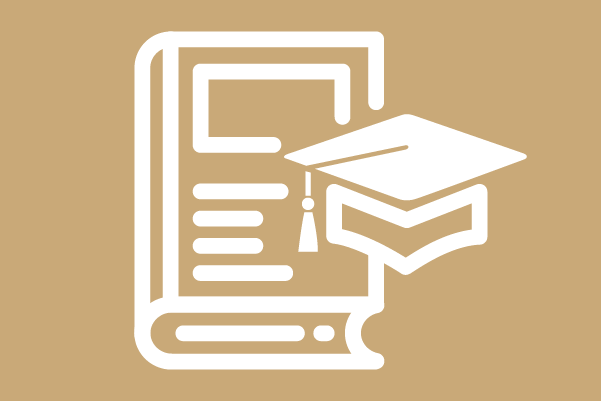
Your Dissertation: Creating Original Research
During the final part of the program, you begin work on your dissertation—the culmination of your original research. You choose the topic of research in conjunction with your committee.
VIEW PROGRAM SPECIFICS
Beyond Business: Cross-Disciplinary Collaboration and Dialogue
Tap into the experience and expertise of faculty members from across Cornell University.
Management is a broad science. Business leaders serve in a variety of roles in industries of all kinds: healthcare, consumer goods, agriculture, biotechnology, media, and consulting to name just a few. At Cornell, you can enrich your education and expand your research opportunities by taking courses and finding mentors beyond the college of business.
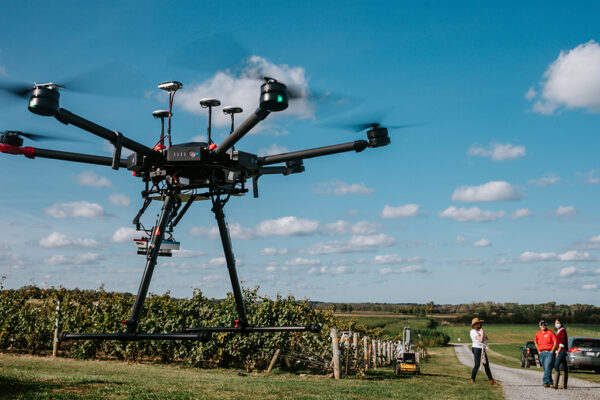
Explore fields like computer science, psychology, sociology, communication, engineering, and data science—and then connect the dots back to your management research.
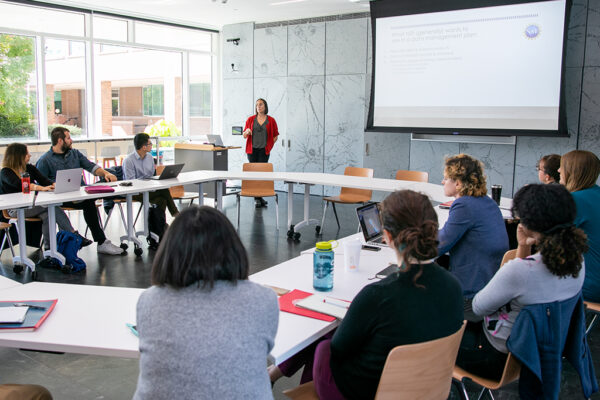
Interact with peers and professors from other disciplines by participating in student organizations and special interest groups or by attending public lectures, workshops, and networking events.
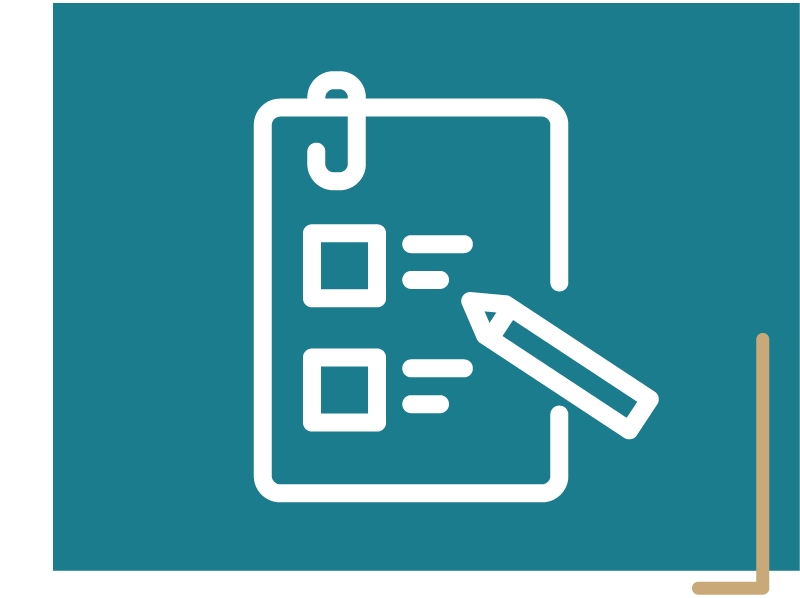
Admissions Overview: How to Apply to the Management PhD Program
The ideal candidate for the Johnson School’s doctorate degree in management will have a strong record of academic excellence, a solid understanding of the research process, and an entrepreneurial approach to problem-solving. An MBA or master’s degree is not a requirement for admission.
Our admissions page offers more details about program prerequisites, selection criteria, requirements, deadline information, and a checklist of materials you need to submit with your application.
Connect With Cornell Admissions
The Johnson School admissions team is available to answer your questions about the program and the application process. Stop in or reach out by phone or email today.
253-D Sage Hall Johnson Graduate School of Management Cornell University Ithaca, NY 14853-6201
Phone: 607-255-5340 Email: Graduate Research Programs Office
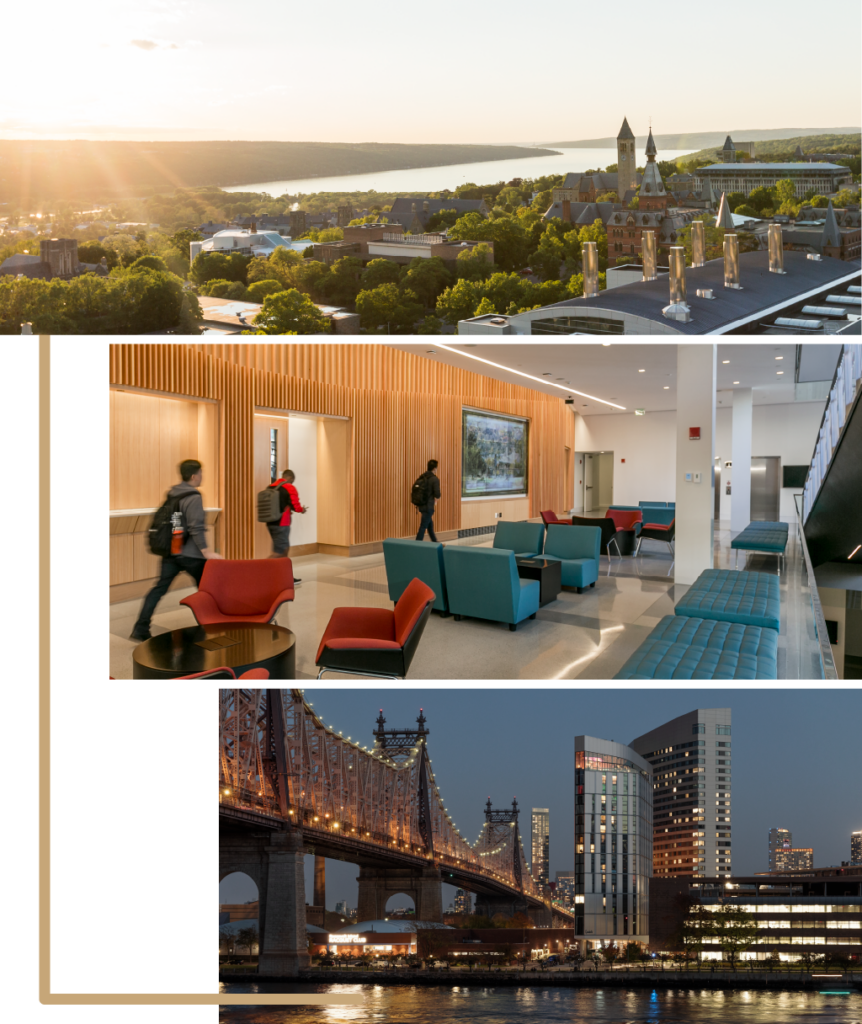
The Cornell Campus: Where You Will Learn, Grow, and Thrive
Learn, grow, and thrive on one of the most beautiful college campuses in the United States. As a PhD student, you’ll spend a lot of time in Sage Hall, a Gothic-style building dating back to 1875. You’ll find more high-tech learning spaces just off campus at the Breazzano Family Center for Business Education. You’ll also have access to the innovative campus of Cornell Tech in New York City—particularly relevant to students focused on technology and information management.
Attending Cornell also means you’ll call Ithaca, NY, home for about five years. Our eclectic downtown is full of eateries, shops, activities, and all of the amenities you’d need for everyday life. When you’re not in class or studying, you can explore all that the Finger Lakes region has to offer.
PhD in Management FAQ: What You Need to Know
Before you apply to a research-focused graduate program, you’re likely to want to do some deep research of your own. For instance, how does a fully funded PhD in Management work? What’s the typical completion time?
We have a robust Frequently Asked Questions section to help you learn more about our program, the admissions process, and dissertation requirements. For our international applicants, you’ll also find specific details about earning your PhD in Management.
May I speak to someone about my interest in the program and visit?
You are welcome to reach out to any professor with whom you see a good research fit. Our website also has a wealth of information about the program.
Is an interview part of the process?
We offer interviews only to a few applicants after their first screening.
May I talk to a professor or advisor?
You are welcome to contact any professor with whom you see a research match. Faculty are more likely to respond to specific research queries.
I have questions; may I write to this program email address?
Yes. Our response time will vary. We are not able to answer detailed questions that are better assessed by faculty during the application process.
May I schedule a campus tour?
Admissions does not offer campus tours for PhD program applicants. However, you may arrange an appointment with a faculty member.
Fraud alert – beware of third-party post-doc scams.
Cornell University recently has been made aware of fraudulent activity targeting overseas students and researchers, including at least one third party website falsely stating that it is offering a postdoctoral or visiting scholar program in association with Cornell. These scams, which may seek to obtain money and/or personal details from interested applicants, are fraudulent.
Cornell wishes to warn the public about these fraudulent activities being perpetrated purportedly in the name of Cornell, and/or its officials. Please be advised that:
- Cornell does not, nor has it, worked in collaboration with third-party companies or organizations to offer postdoctoral or research certificate programs.
- Third parties do not collect tuition or fees on behalf of Cornell.
- Cornell does not work with or endorse such organizations including, but not limited to, Shanghai Lufei Education Technology Co., Ltd. (Chinese name: 上海璐斐教育科技有限公司) and Shenzhen Guoyan Era Education Technology Co., Ltd. (Chinese name: 深圳市国研时代教育科技有限公司).
Cornell’s postdoctoral positions are listed on the Academic Career Opportunities website and postdoctoral fellowship programs are available for viewing. If you suspect a third party of falsely advertising a Cornell program, please notify [email protected]. Victims of such scams may also report them to their local law enforcement authorities for appropriate action.
Start the Application Process Today
Ready to apply to our highly selective, fully funded PhD in Management? We look forward to learning more about you and your research goals. Start the application process today at the Cornell Graduate Admissions website. [You’ll first need to register for an account or log in to an existing one.]
- Harvard Business School →
Two Years. A World of Difference.
Harvard Business School offers a two-year, full-time MBA program with a general management curriculum focused on real-world practice.
Becoming a student at HBS means joining a global community that propels lifelong learning and career support alongside peers, faculty, and staff who will both challenge you and cheer you on as you find and accelerate your path.
Admissions
- How to Apply
- Application Dates
- Financial Aid
- Joint Degrees
- Visit a Class
Financial Aid
Academic experience , dynamic learning environments.
Through case method courses, FIELD projects, tech simulations, introspective exercises, and more, you will discover your potential and leave a more inspiring leader than you ever thought possible.
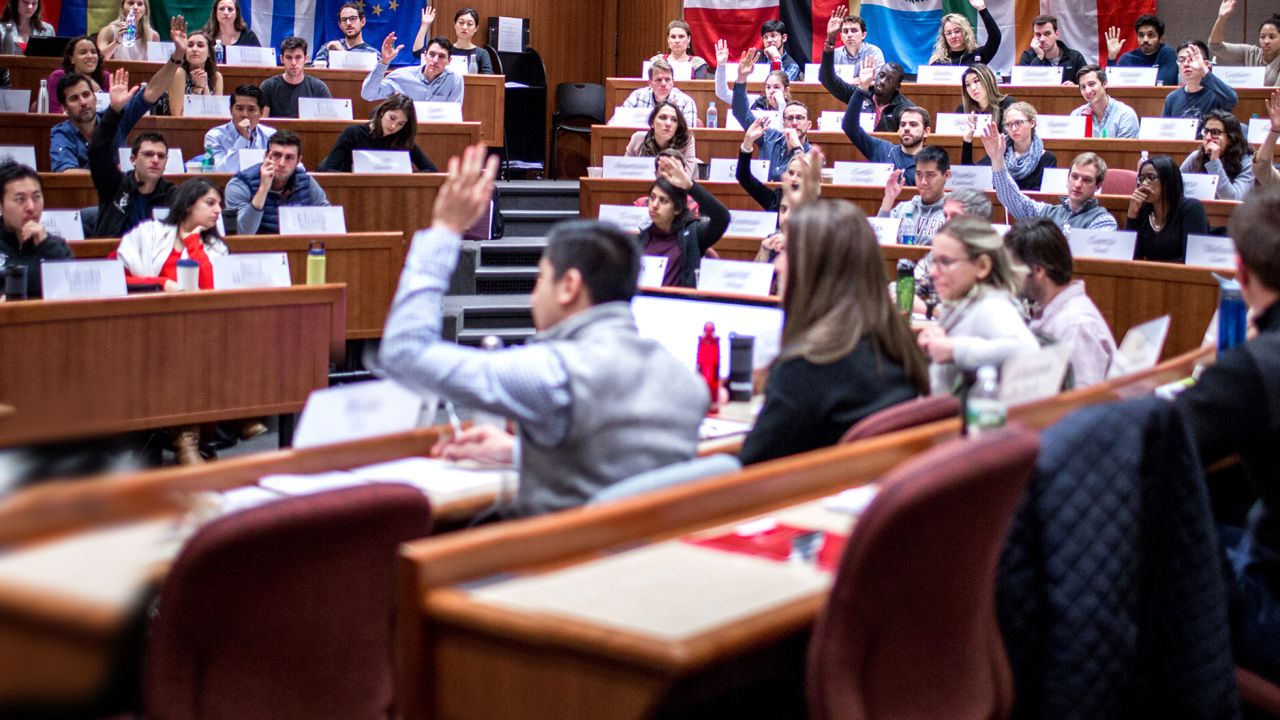
Take a Seat in the Harvard MBA Case Classroom

Into the Field
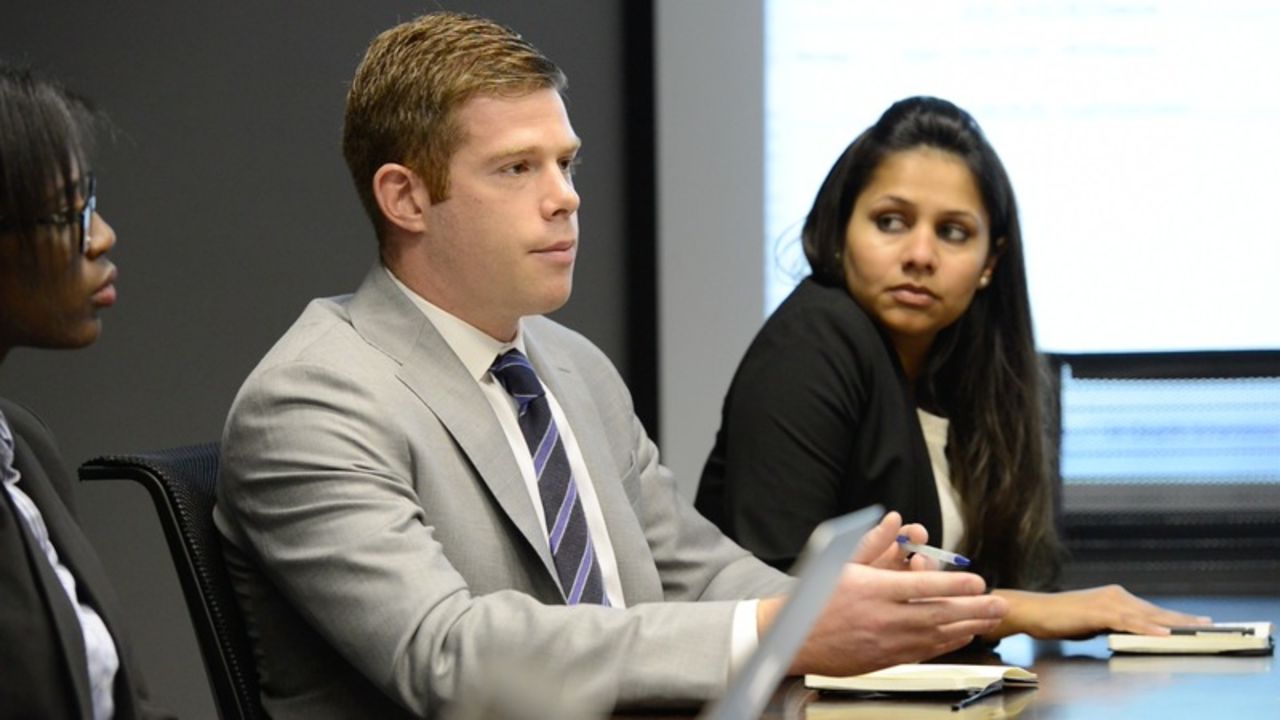
- Arthur Brooks
We’re Lonelier Than Ever — And There’s One Big Reason

Entrepreneurship
What difference will you make, class profile , student life , an inspiring & collaborative community.
Here you'll learn as much from your classmates as you do from our world-class instructors—and they from you! Each class is an assembly of individuals who bring their diverse backgrounds and unique experiences to case discussions. The scale of HBS—from large-format classes to intimate sections and curated study groups—is intentionally designed to foster growth and learning.
Large Class
Small sections, student clubs, student profiles , will i belong.
“The section—the incredibly diverse group of 94 classmates, hand-picked to create a representative microcosm of the entire +900 class —has been the most wonderful unexpected gift in my HBS journey. To them I am grateful for the many lessons they have taught me, but, most importantly, to them I am grateful for giving me the freedom to be my authentic self.”
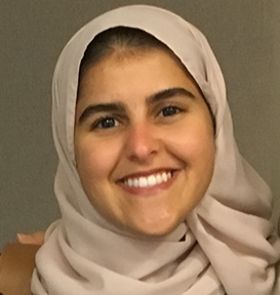
Take a Walk through our Residential Campus
A global experience , direct from the director , hbs mba is now a stem-designated degree.
- 24 Jul 2024
Upcoming Events
Hbs information session in hong kong, mba voices blog .
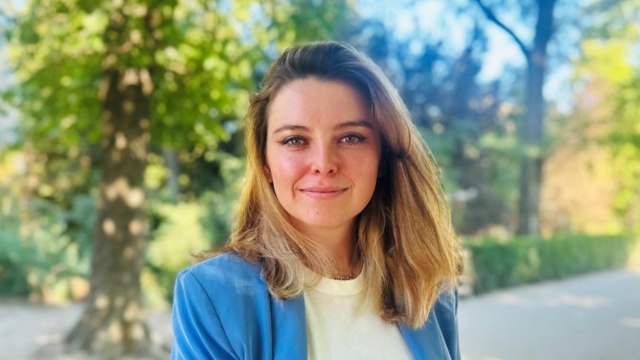
Leni Peterson R. (MS/MBA 2023): Solving Big Problems Through Entrepreneurship
- 29 Aug 2024
- MBA Admissions Blog

HBS Lingo 101
- 26 Aug 2024
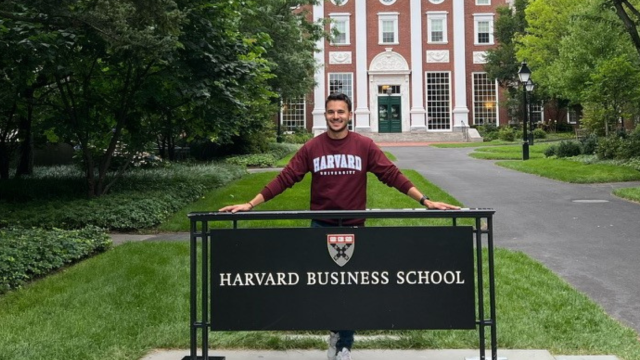
Chasing a Dream: My Summer Internship at Chelsea Football Club
- 20 Aug 2024
Stay in Touch
- Exam Prep >
- Prepare for Business School >
- Business School & Careers >
- Explore Programs >
- Connect with Schools >
- How to Apply >
- Help Center >
- About the Exam
- Register for the Exam
- Plan for Exam Day
- Prep for the Exam
- About the Executive Assessment
- Register for the Executive Assessment
- Plan for Assessment Day
- Prepare for the Assessment
- NMAT by GMAC
- Shop GMAT™ Official Prep
- About GMAT™ Official Prep
- Prep Strategies
- Personalized Prep Plan
- GMAT Mini Quiz
- Executive Assessment Exam Prep
- NMAT by GMAC Exam Prep
Prepare For Business School
- Business Fundamentals
- Skills Insight
Business School & Careers
- Why Business School
- Student Experience
- Business Internships
- B-School Go
- Quiz: Are You Leadership Material?
- MBA Return on Investment (ROI) Calculator
- Estimate Your Salary
- Success Stories
- Diversity and Inclusion
- Women in Business
- Explore Programs
- Top Business School Programs
- Quiz: Which Post Graduate Program is Right for You?
- Quiz: Find the Best Program for Your Personality
- Business School Rankings
- Business Master's Programs
- MBA Programs
- Study Destinations
- Find Programs Near Me
- Find MBA Programs
- Find Master's Programs
- Find Executive Programs
- Find Online Programs
Connect with Schools
- About GradSelect
- Create a GradSelect Profile
- Prep Yourself for B-School
- Quiz: Can You Network Like An MBA?
- Events Calendar
- School Events
- GMAC Tours Events
- In-Person Events
- Online Events
How to Apply
- Apply to Programs
- The Value of Assessments
- Admissions Essays
- Letters of Recommendation
- Admissions Interviews
- Scholarships and Financing
- Quiz: What's Your Ideal Learning Style?
Help Center
- Create Account
- Choose and Compare Programs
- What is an MBA?
What Is an MBA? All About the MBA Degree and MBA Programs

The MBA is the world’s most popular graduate management degree. Employers love it and students can’t get enough of it. Thousands of ambitious professionals apply to different types of MBA program each year.
As a generalist degree, the MBA gives you fundamental management knowledge, meaning you’ll get a holistic view of business across areas like marketing, finance, and accounting, all while developing those vital soft skills and leadership skills.
Famous MBA alumni include CEOs of multinational companies, successful entrepreneurs, and former Presidents. George W Bush, Michael Bloomberg, Tim Cook, Satya Nadella, Sundar Pichai, Sheryl Sandberg—they all have MBAs.
So what can you do with an MBA degree? What types of MBA programs are available? And is an MBA worth it?
What Does MBA Stand For? MBA Definition
MBA stands for Master of Business Administration
First introduced by Harvard University Graduate School of Administration in 1908 (now Harvard Business School ), the MBA is the original graduate degree offered by business schools globally.
Having "MBA" on your resume will help you stand out to employers, but the true meaning of the MBA goes beyond three letters on a sheet. During an MBA, you'll build your business knowledge, grow your professional network, and boost your career and salary prospects.
Who is an MBA degree for?
The Harvard MBA class of 2025 is comprised of 39% international students and 45% women. Students come from technology, manufacturing, healthcare, nonprofits, the media, and the military, as well as finance and consulting.
At INSEAD , more than 80 nationalities are typically represented in the MBA class and students come from academic backgrounds ranging from business and engineering to the arts and political sciences.
According to the Graduate Management Admission Council™ (GMAC™), the top career motivations for prospective business school students include: the opportunity to enrich their lives, develop their potential, increase their income, gain business knowledge, and enhance their network – and these benefits are just some of the many reasons to get an MBA .
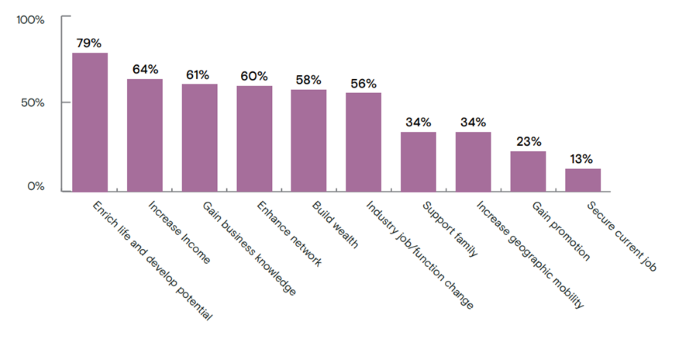
Whatever your background, if you want to learn management skills and advance your career, the MBA is for you; whether you want to start your own business, progress within your current company, switch function, industry, location, or all three at the same time.
“An MBA is not just designed to equip students for their next job post-graduation; it’s a life changing experience that enables students to make career changes five, 10, and 15 years post-MBA, thanks to the skills they learn and the network that lasts long after graduation,” says Virginie Fougea, global director of admissions and financial aid at INSEAD.
Types of MBA programs
While the traditional full-time MBA degree is a popular option, the MBA today comes in all shapes and sizes. Business schools offer various types of MBA programs suited to different profiles of students.
MBA program types
Students, duration, and formats of different MBA program types
| MBA Program | Students | Duration | Formats |
|---|---|---|---|
|
|
| | |
|
|
|
| |
|
| |
| |
|
|
|
| |
Full-time MBA
The full-time MBA is the original, immersive, on-campus experience, designed for early and mid-career students who may be looking to completely change their career path. The two-year, full-time MBA program is most popular in the United States and offered by the group of elite M7 business schools . In India, the Postgraduate Diploma in Management is also offered as an MBA alternative.
The one-year MBA is especially popular in Europe and Asia, offering an accelerated experience and less time out of the workplace, although full-time MBAs come in a variety of formats. INSEAD’s MBA takes just 10 months to complete, while London Business School offers flexible exit points after 15, 18, or 21 months of study.
Part-time MBA
The part-time MBA allows you to combine work and study, meaning you don’t miss out on your salary and the opportunity cost of pursuing a full-time program. Part-time MBA classes typically take place in evenings, weekends, or in flexible modular formats, combining online learning with in-person sessions.
Executive MBA
The Executive MBA is a part-time MBA program targeted at experienced, executive-level professionals with over 10 years of work experience. EMBA programs bring senior leaders together to upskill, network, and knowledge share, with participants bringing their professional projects into the classroom.
The Online MBA is a super-flexible, part-time MBA experience, allowing you to continue working while studying from the comfort of your home. Online MBA programs typically require a residential component (1-2 weeks), although there are an increasing number of 100 percent-online MBA programs. Many online MBAs also allow you to pay per module and plan your own study time. This means durations for online MBA programs can vary, although most take around two years to complete.
MBA Specializations
While the MBA is a generalist degree, you can specialize in areas you’re interested in. Business schools offer various MBA specializations including MBAs in healthcare management, business analytics, entrepreneurship, finance, marketing, and HR. These usually combine core MBA courses in management with a specialist track of courses focused on your area of interest.
In the US, STEM MBA programs have specializations that incorporate STEM topics and international graduates from STEM MBAs can stay and work in the US for up to three years without an H-1B visa .
You can also pursue dual degrees at most business schools, combining your MBA with a specialized business master’s , or cross-university programs like the JD MBA , offered jointly by law and business schools.
MBA courses and curriculum
The MBA curriculum is typically divided into two parts:
Core MBA courses cover the foundations of general management. Core courses typical of MBA programs include:
- Business Communication
- Business Ethics
- Business Strategy
- Data Analytics
Elective MBA courses give you the opportunity to select courses that best match your individual career goals. You usually study the core MBA syllabus before choosing electives in the second half of the program.
There are a wide variety of elective courses covering anything from HR management, nonprofit management, entrepreneurship, sustainability and CSR, to cutting-edge topics like artificial intelligence and blockchain.
Most MBA courses are taught using the case study method, made famous by Harvard Business School, which sees students analyze case studies of business successes or failures before discussing them in class.
You learn the business theory during an MBA before applying your learnings in group project work or even real-world consulting projects. Outside class, you can immerse yourself in all aspects of business school life: MBA clubs, extracurriculars, networking events, conferences, competitions, company visits, and exciting international immersions.
What’s it like being an MBA student? “The irony of the MBA is that it’s usually pursued in an effort to stand out, but during the experience your interaction with so many interesting, driven, and stimulating people is both humbling and inspiring,” says Pascal Michels, former MBA student and MBA admissions director at IESE Business School , now a director and consultant at MBA admissions consulting firm Menlo Coaching.
“Beyond the academics, an MBA is really about the people you meet; the friendships forged in heated classroom discussions and late-night team meetings—that’s what triggers much of the personal growth.”
MBA jobs: What can you do with an MBA?
What can you do with an MBA degree? Pretty much anything you set your mind to. An MBA prepares you for jobs in a variety of industries and roles. Typical high-paying MBA jobs include:
- Finance Manager
- Financial Advisor
- Investment Banker
- Management Analyst
- Management Consultant
- Marketing Manager
- Operations Manager
Employers love hiring MBA graduates and many recruit on campus. According to GMAC’s Corporate Recruiters Survey , 82% of employers expressed their confidence in business schools’ ability to prepare graduates for success.
Increasingly, MBA graduates can be found in industries ranging from healthcare to nonprofits working for both multinationals and startups, and many start businesses of their own. In 2023, entrepreneurial graduates from Stanford Graduate School of Business and Harvard Business School launched 87 startups between them.
Companies that hire the most MBAs include the Big Three management consulting firms , Bain, BCG, and McKinsey; Big Tech firms like Amazon, Google, and Microsoft; and accounting firms like Accenture, Deloitte, and EY.
Several years after graduation, MBAs progress to senior, executive-level jobs. Many Fortune 500 CEOs – including the CEOs of Apple, JP Morgan, Microsoft, and Walmart – have MBAs.
“When we hire an MBA grad, the global perspective and diversity of experiences they have allows them to plug right into Bain, and any of our capability areas, and start helping our clients succeed in their industries,” says Keith Bevans, global head of consultant recruiting at Bain & Company.
MBA program salary: What can you earn?
Getting an MBA degree will boost your salary prospects. MBA students from the NYU Stern School of Business Class of 2022 landed median base salaries of $170k. Meanwhile, grads from the University of California Berkeley Haas School of Business landed median base salaries of $155k in 2022.
Three years after graduation, MBA salaries can increase by well over 100%. Across the top 10 MBA programs ranked by the Financial Times in 2023, students increased their salaries by around 130% on average, within three years of achieving their MBA.
Your average MBA salary prospects naturally vary depending on your industry, role, and the business school you go to. The highest-paying MBA jobs tend to be in finance or consulting. Consulting salaries for MBA graduates at McKinsey, Bain, and BCG can reach $260k (including bonuses and benefits) in the first year after completing an MBA, according to ManagementConsulted.
The average MBA salary in the US is around $106k after graduation, although MBA salary also varies by location. Based on your experience level and industry, you can estimate your post-MBA salary using our interactive tool .
MBA cost: Is an MBA degree program worth it?
How much does an MBA cost? According to the BusinessBecause Cost of MBA Report 2024 , the average total cost of studying one of the world’s top-ranked full-time MBA programs is $205,763. This figure includes the cost of tuition, additional fees, living expenses, and healthcare insurance.
The cost of an MBA varies significantly depending on where you study. The average total cost of a top-ranked, full-time MBA program in the US is US$243,267, while in Europe it’s US$140,130k.
Tuition fees for the top-ranked full-time MBA programs featured in the BusinessBecause report vary from US$81,257 to around US$176,600k.
There are many more affordable full-time MBA programs that deliver similar quality of learning and outcomes. The University of Worcester MBA, priced at £17k for international students, and an MBA at the University of Suffolk MBA, £17 for internations offer two of the most affordable MBA programs in the UK .
If you’re living at home and working alongside a Part-time MBA, Online MBA, or Executive MBA program, you won’t pay additional fees related to living costs and you won’t face the opportunity cost from missing out on your salary.
What’s more, business schools offer a variety of MBA scholarships and financial aid to help you fund your tuition, meaning – for full-time MBAs especially – you’ll rarely pay the full cost of tuition for your MBA.
These benefits – plus the post-MBA salary, skills, and network you’ll gain – mean you shouldn’t let the price of an MBA put you off when weighing up your return on investment (MBA ROI). If you can find the best fit MBA program that can deliver on your personal ambitions and career goals, then an MBA is more than worth it.
MBA admissions: Applying for an MBA
What are the standard MBA admission requirements? Most business schools require an undergraduate degree or equivalent qualification and a minimum level of work experience.
You’ll need to prepare your application materials – resume, essays, recommendation letters, and GMAT – before applying by an MBA application round deadline . If successful, you’ll progress to an interview before getting a final offer of acceptance.
Applying to business school can be competitive, with MBA acceptance rates for top-ranked MBA programs as low as 8.6% at Stanford, although most top-tier programs admit 20- to 60% of applicants, according to BusinessBecause.
The GMAT exam is a key performance indicator for business schools, but schools consider your holistic profile, looking at all aspects of your application together.
“Strong candidates have a habit of leadership in past and current endeavors, analytical appetite and curiosity, and a penchant for contributing to the success of a community. We want to get to know each applicant and to try to understand how s/he will contribute in our classrooms and community,” says Chad Losee, Harvard Business School’s MBA admissions director.
Now you know what an MBA is and how an MBA can benefit your career, it’s time to take the next step and apply. The MBA application process requires organization and perseverance, and you’ll need to do your research to find the business school that best matches your personality, areas of interest, and career goals.
Find out how to navigate the full-time MBA admissions process and more in our BusinessBecause free-to-download MBA Application Guide .
About Stanford GSB
- The Leadership
- Dean’s Updates
- School News & History
- Commencement
- Business, Government & Society
- Centers & Institutes
- Center for Entrepreneurial Studies
- Center for Social Innovation
- Stanford Seed
About the Experience
- Learning at Stanford GSB
- Experiential Learning
- Guest Speakers
- Entrepreneurship
- Social Innovation
- Communication
- Life at Stanford GSB
- Collaborative Environment
- Activities & Organizations
- Student Services
- Housing Options
- International Students
Full-Time Degree Programs
- Why Stanford MBA
- Academic Experience
- Financial Aid
- Why Stanford MSx
- Research Fellows Program
- See All Programs
Non-Degree & Certificate Programs
- Executive Education
- Stanford Executive Program
- Programs for Organizations
- The Difference
- Online Programs
- Stanford LEAD
- Seed Transformation Program
- Aspire Program
- Seed Spark Program
- Faculty Profiles
- Academic Areas
- Awards & Honors
- Conferences
Faculty Research
- Publications
- Working Papers
- Case Studies
Research Hub
- Research Labs & Initiatives
- Business Library
- Data, Analytics & Research Computing
- Behavioral Lab
Research Labs
- Cities, Housing & Society Lab
- Golub Capital Social Impact Lab
Research Initiatives
- Corporate Governance Research Initiative
- Corporations and Society Initiative
- Policy and Innovation Initiative
- Rapid Decarbonization Initiative
- Stanford Latino Entrepreneurship Initiative
- Value Chain Innovation Initiative
- Venture Capital Initiative
- Career & Success
- Climate & Sustainability
- Corporate Governance
- Culture & Society
- Finance & Investing
- Government & Politics
- Leadership & Management
- Markets and Trade
- Operations & Logistics
- Opportunity & Access
- Technology & AI
- Opinion & Analysis
- Email Newsletter
Welcome, Alumni
- Communities
- Digital Communities & Tools
- Regional Chapters
- Women’s Programs
- Identity Chapters
- Find Your Reunion
- Career Resources
- Job Search Resources
- Career & Life Transitions
- Programs & Webinars
- Career Video Library
- Alumni Education
- Research Resources
- Volunteering
- Alumni News
- Class Notes
- Alumni Voices
- Contact Alumni Relations
- Upcoming Events
Admission Events & Information Sessions
- MBA Program
- MSx Program
- PhD Program
- Alumni Events
- All Other Events
- Second Year
- Global Experiences
- JD/MBA Joint Degree
- MA Education/MBA Joint Degree
- MD/MBA Dual Degree
- MPP/MBA Joint Degree
- MS Computer Science/MBA Joint Degree
- MS Electrical Engineering/MBA Joint Degree
- MS Environment and Resources (E-IPER)/MBA Joint Degree
- Academic Calendar
- Clubs & Activities
- LGBTQ+ Students
- Military Veterans
- Minorities & People of Color
- Partners & Families
- Students with Disabilities
- Student Support
- Residential Life
- Student Voices
- MBA Alumni Voices
- A Week in the Life
- Career Support
- Employment Outcomes
- Cost of Attendance
- Knight-Hennessy Scholars Program
- Yellow Ribbon Program
- BOLD Fellows Fund
- Application Process
- Loan Forgiveness
- Contact the Financial Aid Office
- Evaluation Criteria
- GMAT & GRE
- English Language Proficiency
- Personal Information, Activities & Awards
- Professional Experience
- Letters of Recommendation
- Optional Short Answer Questions
- Application Fee
- Reapplication
- Deferred Enrollment
- Entering Class Profile
- Event Schedule
- Ambassadors
- New & Noteworthy
- Ask a Question
- Student Life & Community
- Career Impact
- Tuition & Aid

Stanford MBA Program
Change starts here. .
Change lives, change organizations, change the world. Our motto is more than words — ideas started here have fundamentally changed how the world works, connects, and lives. But there is another change a little less quantifiable — an internal change that occurs as students become leaders by challenging themselves intellectually, engaging and collaborating with their equally driven peers, and gaining global exposure
The Stanford MBA Program Is Designed to Help You
No matter the end goal, our full-time, two-year MBA program will help you become a stronger leader and a better person. Immersing yourself in the program in person on campus allows for a transformative experience . Find out more about how your time at Stanford can change you.

An Experience Unlike Any Other
Stanford GSB, with our campus in the heart of Silicon Valley, is a one-of-a-kind MBA program that has redefined the business school experience. Here, you’ll be pushed and challenged by best-in-class faculty and supported by your classmates in an environment unlike anywhere else. Collaboration, not competition, is key in a Stanford classroom. You’ll work closely with students from all around the world and of all different backgrounds. Against the backdrop of beautiful California days, you’ll find life-long collaborators, mentors, and friends.
Learn more about what it means to be part of the Stanford community, or explore more in the links below.

Admissions: Taking the First Step
A master’s degree from Stanford will take you wherever you want to go, but you have to take the first step. A great place to start your Stanford journey is at an admissions event . These virtual or in-person events will show you how Stanford GSB can transform your life and career. Admissions events include MBA information sessions, panels, small group chats, and other opportunities to engage with students, alumni, and admissions staff around the world.
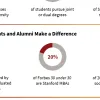
Tens of thousands of Stanford GSB alumni from around the world are hard at work, right now, changing lives, changing organizations, and changing the world. You can join them.
It all starts at Stanford. It all starts with your application.
Personalize Your Admissions Journey at MyStanfordGSB
Create or update your MBA Profile! Head to the MyStanfordGSB.Info page to see a personalized dashboard for your MBA journey. The MyStanfordGSB prospect portal helps you track your application progress, register for upcoming events, and engage with stories and content relevant to you.
Financial Aid: We’ll Help You Get Here
Finances can be a sensitive topic, but we’ll address it plainly: your financial situation should not hold you back from applying. Obtaining an MBA is a significant investment in you and your future. We want to make sure that investment is a reasonable one.
We believe in accessible and attainable higher education for all and our Financial Aid Office will work with you to find the right resources for your needs. Whatever your citizenship status, whatever your financial status, once admitted, we want you here. We can help you fund your MBA through a combination of fellowship awards, student loans, summer stipends, nonprofit/public service loan forgiveness programs, and other types of financial aid .
Millions in Financial Aid Awarded Each Year
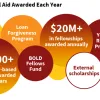
Jamille Jamison

Ragav Manimaran

- See the Current DEI Report
- Supporting Data
- Research & Insights
- Share Your Thoughts
- Search Fund Primer
- Teaching & Curriculum
- Affiliated Faculty
- Faculty Advisors
- Louis W. Foster Resource Center
- Defining Social Innovation
- Impact Compass
- Global Health Innovation Insights
- Faculty Affiliates
- Student Awards & Certificates
- Changemakers
- Dean Jonathan Levin
- Dean Garth Saloner
- Dean Robert Joss
- Dean Michael Spence
- Dean Robert Jaedicke
- Dean Rene McPherson
- Dean Arjay Miller
- Dean Ernest Arbuckle
- Dean Jacob Hugh Jackson
- Dean Willard Hotchkiss
- Faculty in Memoriam
- Stanford GSB Firsts
- Annual Alumni Dinner
- Class of 2024 Candidates
- Certificate & Award Recipients
- Dean’s Remarks
- Keynote Address
- Teaching Approach
- Analysis and Measurement of Impact
- The Corporate Entrepreneur: Startup in a Grown-Up Enterprise
- Data-Driven Impact
- Designing Experiments for Impact
- Digital Marketing
- The Founder’s Right Hand
- Marketing for Measurable Change
- Product Management
- Public Policy Lab: Financial Challenges Facing US Cities
- Public Policy Lab: Homelessness in California
- Lab Features
- Curricular Integration
- View From The Top
- Formation of New Ventures
- Managing Growing Enterprises
- Startup Garage
- Explore Beyond the Classroom
- Stanford Venture Studio
- Summer Program
- Workshops & Events
- The Five Lenses of Entrepreneurship
- Leadership Labs
- Executive Challenge
- Arbuckle Leadership Fellows Program
- Selection Process
- Training Schedule
- Time Commitment
- Learning Expectations
- Post-Training Opportunities
- Who Should Apply
- Introductory T-Groups
- Leadership for Society Program
- Certificate
- 2024 Awardees
- 2023 Awardees
- 2022 Awardees
- 2021 Awardees
- 2020 Awardees
- 2019 Awardees
- 2018 Awardees
- Social Management Immersion Fund
- Stanford Impact Founder Fellowships
- Stanford Impact Leader Prizes
- Social Entrepreneurship
- Stanford GSB Impact Fund
- Economic Development
- Energy & Environment
- Stanford GSB Residences
- Environmental Leadership
- Stanford GSB Artwork
- A Closer Look
- California & the Bay Area
- Voices of Stanford GSB
- Business & Beneficial Technology
- Business & Sustainability
- Business & Free Markets
- Business, Government, and Society Forum
- Get Involved
- Joint & Dual Degrees
- See Why Stanford MSx
- Is MSx Right for You?
- MSx Stories
- Leadership Development
- How You Will Learn
- Admission Events
- Personal Information
- GMAT, GRE & EA
- English Proficiency Tests
- Career Change
- Career Advancement
- Career Support and Resources
- Daycare, Schools & Camps
- U.S. Citizens and Permanent Residents
- Requirements
- Requirements: Behavioral
- Requirements: Quantitative
- Requirements: Macro
- Requirements: Micro
- Annual Evaluations
- Field Examination
- Research Activities
- Research Papers
- Dissertation
- Oral Examination
- Current Students
- Education & CV
- International Applicants
- Statement of Purpose
- Reapplicants
- Application Fee Waiver
- Deadline & Decisions
- Job Market Candidates
- Academic Placements
- Stay in Touch
- Faculty Mentors
- Current Fellows
- Standard Track
- Fellowship & Benefits
- Group Enrollment
- Program Formats
- Developing a Program
- Diversity & Inclusion
- Strategic Transformation
- Program Experience
- Contact Client Services
- Campus Experience
- Live Online Experience
- Silicon Valley & Bay Area
- Digital Credentials
- Faculty Spotlights
- Participant Spotlights
- Eligibility
- International Participants
- Stanford Ignite
- Frequently Asked Questions
- Operations, Information & Technology
- Organizational Behavior
- Political Economy
- Classical Liberalism
- The Eddie Lunch
- Accounting Summer Camp
- California Econometrics Conference
- California Quantitative Marketing PhD Conference
- California School Conference
- China India Insights Conference
- Homo economicus, Evolving
- Political Economics (2023–24)
- Scaling Geologic Storage of CO2 (2023–24)
- A Resilient Pacific: Building Connections, Envisioning Solutions
- Adaptation and Innovation
- Changing Climate
- Civil Society
- Climate Impact Summit
- Climate Science
- Corporate Carbon Disclosures
- Earth’s Seafloor
- Environmental Justice
- Operations and Information Technology
- Organizations
- Sustainability Reporting and Control
- Taking the Pulse of the Planet
- Urban Infrastructure
- Watershed Restoration
- Junior Faculty Workshop on Financial Regulation and Banking
- Ken Singleton Celebration
- Marketing Camp
- Quantitative Marketing PhD Alumni Conference
- Presentations
- Theory and Inference in Accounting Research
- Stanford Closer Look Series
- Quick Guides
- Core Concepts
- Journal Articles
- Glossary of Terms
- Faculty & Staff
- Subscribe to Corporate Governance Emails
- Researchers & Students
- Research Approach
- Charitable Giving
- Financial Health
- Government Services
- Workers & Careers
- Short Course
- Adaptive & Iterative Experimentation
- Incentive Design
- Social Sciences & Behavioral Nudges
- Bandit Experiment Application
- Conferences & Events
- Reading Materials
- Energy Entrepreneurship
- Faculty & Affiliates
- SOLE Report
- Responsible Supply Chains
- Current Study Usage
- Pre-Registration Information
- Participate in a Study
- Founding Donors
- Program Contacts
- Location Information
- Participant Profile
- Network Membership
- Program Impact
- Collaborators
- Entrepreneur Profiles
- Company Spotlights
- Seed Transformation Network
- Responsibilities
- Current Coaches
- How to Apply
- Meet the Consultants
- Meet the Interns
- Intern Profiles
- Collaborate
- Research Library
- News & Insights
- Databases & Datasets
- Research Guides
- Consultations
- Research Workshops
- Career Research
- Research Data Services
- Course Reserves
- Course Research Guides
- Material Loan Periods
- Fines & Other Charges
- Document Delivery
- Interlibrary Loan
- Equipment Checkout
- Print & Scan
- MBA & MSx Students
- PhD Students
- Other Stanford Students
- Faculty Assistants
- Research Assistants
- Stanford GSB Alumni
- Telling Our Story
- Staff Directory
- Site Registration
- Alumni Directory
- Alumni Email
- Privacy Settings & My Profile
- Event Registration Help
- Success Stories
- The Story of Circles
- Support Women’s Circles
- Stanford Women on Boards Initiative
- Alumnae Spotlights
- Insights & Research
- Industry & Professional
- Entrepreneurial Commitment Group
- Recent Alumni
- Half-Century Club
- Fall Reunions
- Spring Reunions
- MBA 25th Reunion
- Half-Century Club Reunion
- Faculty Lectures
- Ernest C. Arbuckle Award
- Alison Elliott Exceptional Achievement Award
- ENCORE Award
- Excellence in Leadership Award
- John W. Gardner Volunteer Leadership Award
- Robert K. Jaedicke Faculty Award
- Jack McDonald Military Service Appreciation Award
- Jerry I. Porras Latino Leadership Award
- Tapestry Award
- Student & Alumni Events
- Executive Recruiters
- Interviewing
- Land the Perfect Job with LinkedIn
- Negotiating
- Elevator Pitch
- Email Best Practices
- Resumes & Cover Letters
- Self-Assessment
- Whitney Birdwell Ball
- Margaret Brooks
- Bryn Panee Burkhart
- Margaret Chan
- Ricki Frankel
- Peter Gandolfo
- Cindy W. Greig
- Natalie Guillen
- Carly Janson
- Sloan Klein
- Sherri Appel Lassila
- Stuart Meyer
- Tanisha Parrish
- Virginia Roberson
- Philippe Taieb
- Michael Takagawa
- Terra Winston
- Johanna Wise
- Debbie Wolter
- Rebecca Zucker
- Complimentary Coaching
- Changing Careers
- Work-Life Integration
- Career Breaks
- Flexible Work
- Encore Careers
- Join a Board
- D&B Hoovers
- Data Axle (ReferenceUSA)
- EBSCO Business Source
- Global Newsstream
- Market Share Reporter
- ProQuest One Business
- RKMA Market Research Handbook Series
- Student Clubs
- Entrepreneurial Students
- Stanford GSB Trust
- Alumni Community
- How to Volunteer
- Springboard Sessions
- Consulting Projects
- 2020 – 2029
- 2010 – 2019
- 2000 – 2009
- 1990 – 1999
- 1980 – 1989
- 1970 – 1979
- 1960 – 1969
- 1950 – 1959
- 1940 – 1949
- Service Areas
- ACT History
- ACT Awards Celebration
- ACT Governance Structure
- Building Leadership for ACT
- Individual Leadership Positions
- Leadership Role Overview
- Purpose of the ACT Management Board
- Contact ACT
- Business & Nonprofit Communities
- Reunion Volunteers
- Ways to Give
- Fiscal Year Report
- Business School Fund Leadership Council
- Planned Giving Options
- Planned Giving Benefits
- Planned Gifts and Reunions
- Legacy Partners
- Giving News & Stories
- Giving Deadlines
- Development Staff
- Submit Class Notes
- Class Secretaries
- Board of Directors
- Health Care
- Sustainability
- Class Takeaways
- All Else Equal: Making Better Decisions
- If/Then: Business, Leadership, Society
- Grit & Growth
- Think Fast, Talk Smart
- Spring 2022
- Spring 2021
- Autumn 2020
- Summer 2020
- Winter 2020
- In the Media
- For Journalists
- DCI Fellows
- Other Auditors
- Academic Calendar & Deadlines
- Course Materials
- Entrepreneurial Resources
- Campus Drive Grove
- Campus Drive Lawn
- CEMEX Auditorium
- King Community Court
- Seawell Family Boardroom
- Stanford GSB Bowl
- Stanford Investors Common
- Town Square
- Vidalakis Courtyard
- Vidalakis Dining Hall
- Catering Services
- Policies & Guidelines
- Reservations
- Contact Faculty Recruiting
- Lecturer Positions
- Postdoctoral Positions
- Accommodations
- CMC-Managed Interviews
- Recruiter-Managed Interviews
- Virtual Interviews
- Campus & Virtual
- Search for Candidates
- Think Globally
- Recruiting Calendar
- Recruiting Policies
- Full-Time Employment
- Summer Employment
- Entrepreneurial Summer Program
- Global Management Immersion Experience
- Social-Purpose Summer Internships
- Process Overview
- Project Types
- Client Eligibility Criteria
- Client Screening
- ACT Leadership
- Social Innovation & Nonprofit Management Resources
- Develop Your Organization’s Talent
- Centers & Initiatives
- Student Fellowships
Explore Programs
Business administration - master's (mba).
DEGREE OVERVIEW
The MBA program is designed to train tomorrow's business leaders for lucrative careers in various business functions. Featuring multiple program formats across Arlington and Fort Worth, the AACSB-accredited MBA program combines a dynamic set of business principles with various degrees of customization to prepare students for the modern workforce.
ABOUT THE PROGRAM
The 36-credit hour MBA program prepares leaders with or without prior business education or experience for careers within all types of organizations by offering a comprehensive, advanced understanding of business principles.
- Admissions requirements
- Degree curriculum
- Degree information in the University Catalog
- Tuition estimator
- Program accreditation
CAREER OPPORTUNITIES
- Chief Executives
- General and Operations Managers
- Administrative Services Managers
- Management Analysts
- Social and Community Managers
- Construction Managers
- Industrial Production Managers
- Cost Estimators
DEGREE OPTIONS
Flexible MBA
- Offered on the main campus in Arlington, the Flexible MBA is designed for working professionals seeking a traditional-style experience with maximum degree flexibility.
- Courses are available in traditional, face-to-face 15-week sessions with select hybrid and online options available.
- Enhanced customization options allow the choice of one of 13 areas of concentration and four certificate programs with which to focus the MBA.
- Self-paced curriculum offers degree completion achievable in as little as 15 months.
- Fall, spring, and summer start terms available.
Learn more about the Flexible MBA
- Delivered fully online, the Online MBA is designed for working professionals who prefer a virtual format due to learning preference, work obligations, or personal choice.
- Asynchronous coursework allows students to balance work, school, and family life with 24/7 access from anywhere.
- One, two, or three courses per semester tracks are available with degree completion possible in as little as 15 months.
- Concentration in Management.
Learn more about the Online MBA
- Located in downtown Fort Worth, the Cohort MBA allows professionals in Fort Worth and the surrounding areas a convenient option for completing their degree close to home and work.
- Courses in this hybrid format program are completed one at a time in five-week sessions while still maintaining a full-time pace of 15 hours per semester.
- Degree customization options include health care administration, real estate, or a general MBA.
- A lock-step course sequence of Monday night and Saturday morning courses provides a clear path to degree completion in just 15 months.
- Fall semester start available.
Learn more about the Cohort MBA
WHY CHOOSE US?
- No. 37 Part-time MBA for Public Universities (US. News & World Report, 2024)
- No. 1 "Best for Vets" college (Military Times, 2020)
- Tier One MBA Program (CEO Magazine, 2022)
- No. 8 Best MBA Program in Texas (Top Management Degrees, 2022)
- AACSB Accredited (top 5% of business programs globally)
GET STARTED
Take the next step toward investing in yourself by learning more about our Business Administration - Master's (MBA) program.
Apply Today
If you're ready, so are we. The next step is to apply. Applying for admission is easy, and we're here to work with you every step of the way.
PROGRAM CONTACT
Name: Office of Graduate Business Services
Phone: 817-272-3004
Email: [email protected]
Learn more about this program on the Program or College website.
College of Business
- Financial Aid and Scholarships
- Tuition Estimator
- Tuition Info for Accelerated Online Programs
- Student Affairs
- Division of Student Success

OUR GRADUATES EARN ON AVERAGE
University catalog.
Check out the University Catalog for more information.
If you wish to apply follow this link.
WANT MORE INFORMATION?
We are here to help with any questions you may have.

COMMENTS
PhD Programs - Doctoral
A PhD, the highest academic degree achievable, can open numerous doors in the job market, enabling graduates to advance in their careers. Unlike an MBA, which primarily focuses on corporate and management aspects, a PhD offers expertise in a specific field through rigorous research and study. As a PhD student, your goal is to contribute new ...
Is it Possible to Get My PhD After My MBA?
Doctoral Programs
The PhD/MBA program is a synthesis of curricula from the Graduate School and the Evening MBA Program of the Schools of Business, with specialized course work and opportunities for industrial and business internships. The joint program is open to new and current students in all PhD-granting programs across all Wake Forest campuses.
Why a Doctorate in Business Administration Is Becoming ...
Offerings. An MBA may be pursued in combination with a PhD in one of a wide array of areas of study, in the biological sciences, engineering and applied sciences, the humanities, the physical sciences, and social sciences. An MBA/PhD is not available in the management disciplines.
Stanford GSB PhD Program
Business Administration
As a Business Economics PhD student, you will take courses alongside your peers in the Department of Economics, studying microeconomic theory, macroeconomic theory, probability and statistics, econometrics, and other specialized topics. In addition, your doctoral coursework and two MBA courses at HBS deepen your theoretical knowledge and ...
MIT Sloan PhD Program graduates lead in their fields and are teaching and producing research at the world's most prestigious universities. Rigorous, discipline-based research is the hallmark of the MIT Sloan PhD Program. The program is committed to educating scholars who will lead in their fields of research—those with outstanding ...
Doctoral Program | Kellogg School of Management
Joint & Dual Degrees | Stanford Graduate School of Business
MBA, PhD & Master's in Management Programs
PhD The Stevens Doctoral Program
Fully Funded PhD in Management Program | Cornell Johnson
A PhD-MBA or MBA-PhD is a dual degree program offered in some cases by schools of science, engineering or social science, jointly with business schools.The program generally lasts four to eight years and results in the candidate earning both a Doctor of Philosophy (PhD) degree and a Master of Business Administration (MBA) degree. Students may apply to the joint program before matriculating to ...
2024 Best Business Schools (MBA)
The MBA (Future Business) curriculum covers topics such as strategy, leadership, finance, innovation, entrepreneurship, sustainability and industries 4.0 and 5.0. Your PhD research component may be in many areas of study offered by Flinders University, such as in engineering, the life and medical sciences, and the physical sciences. Potential ...
2024 Best MBA Programs
MBA - Harvard Business School ... MBA
What Is an MBA Degree? MBA Programs and What ...
Stanford MBA Program
DEGREE OVERVIEW . The MBA program is designed to train tomorrow's business leaders for lucrative careers in various business functions. Featuring multiple program formats across Arlington and Fort Worth, the AACSB-accredited MBA program combines a dynamic set of business principles with various degrees of customization to prepare students for the modern workforce.